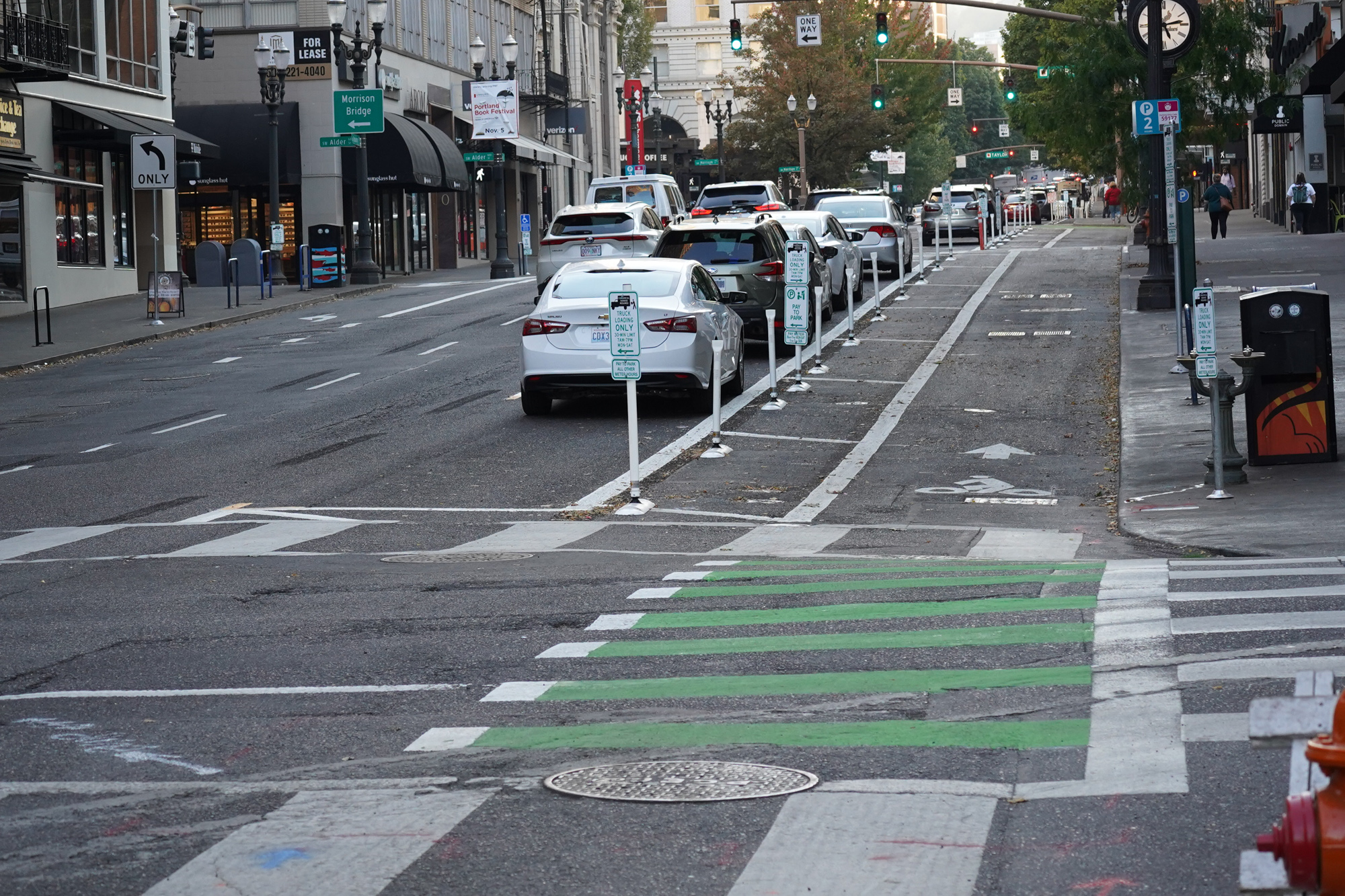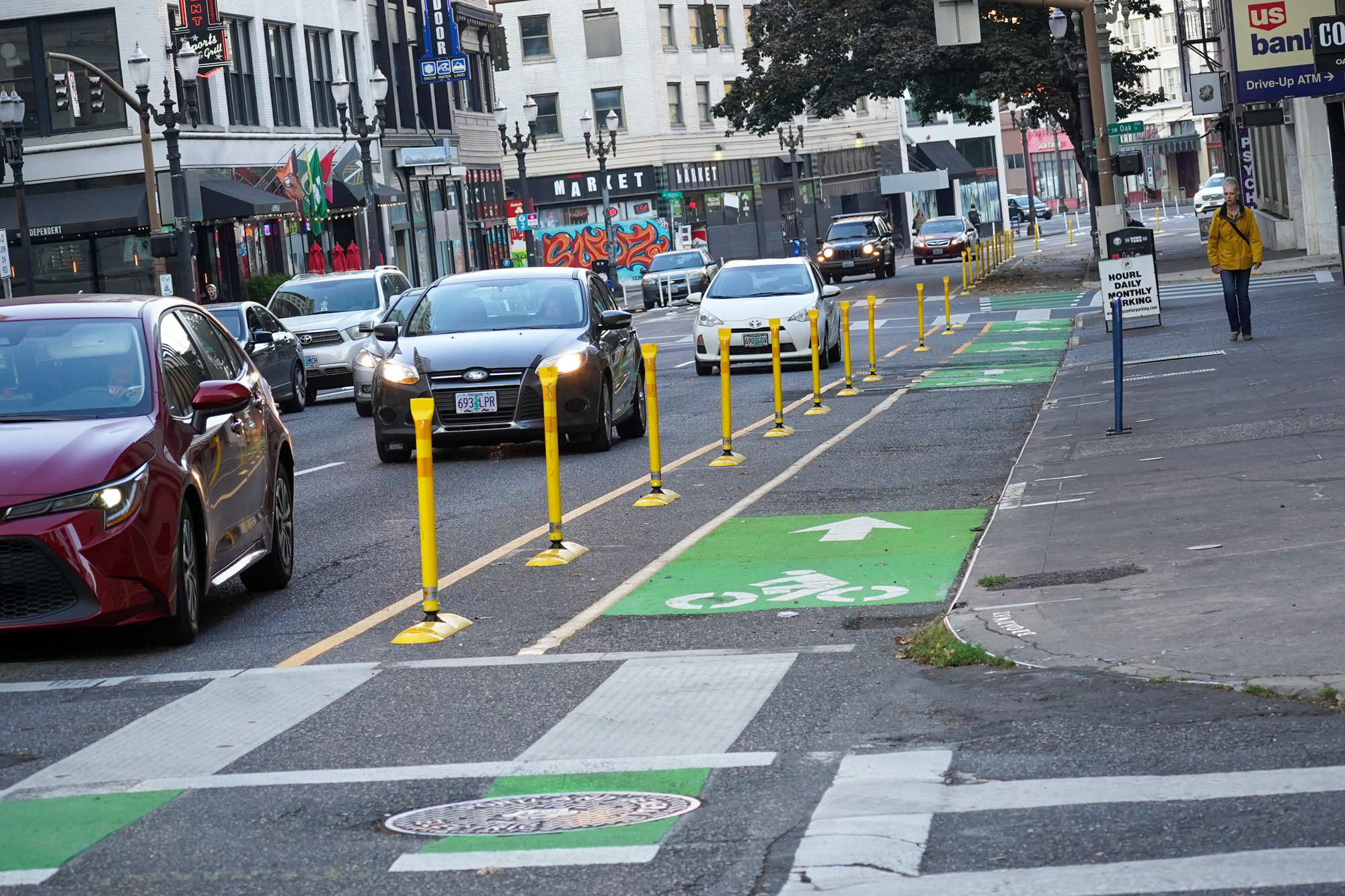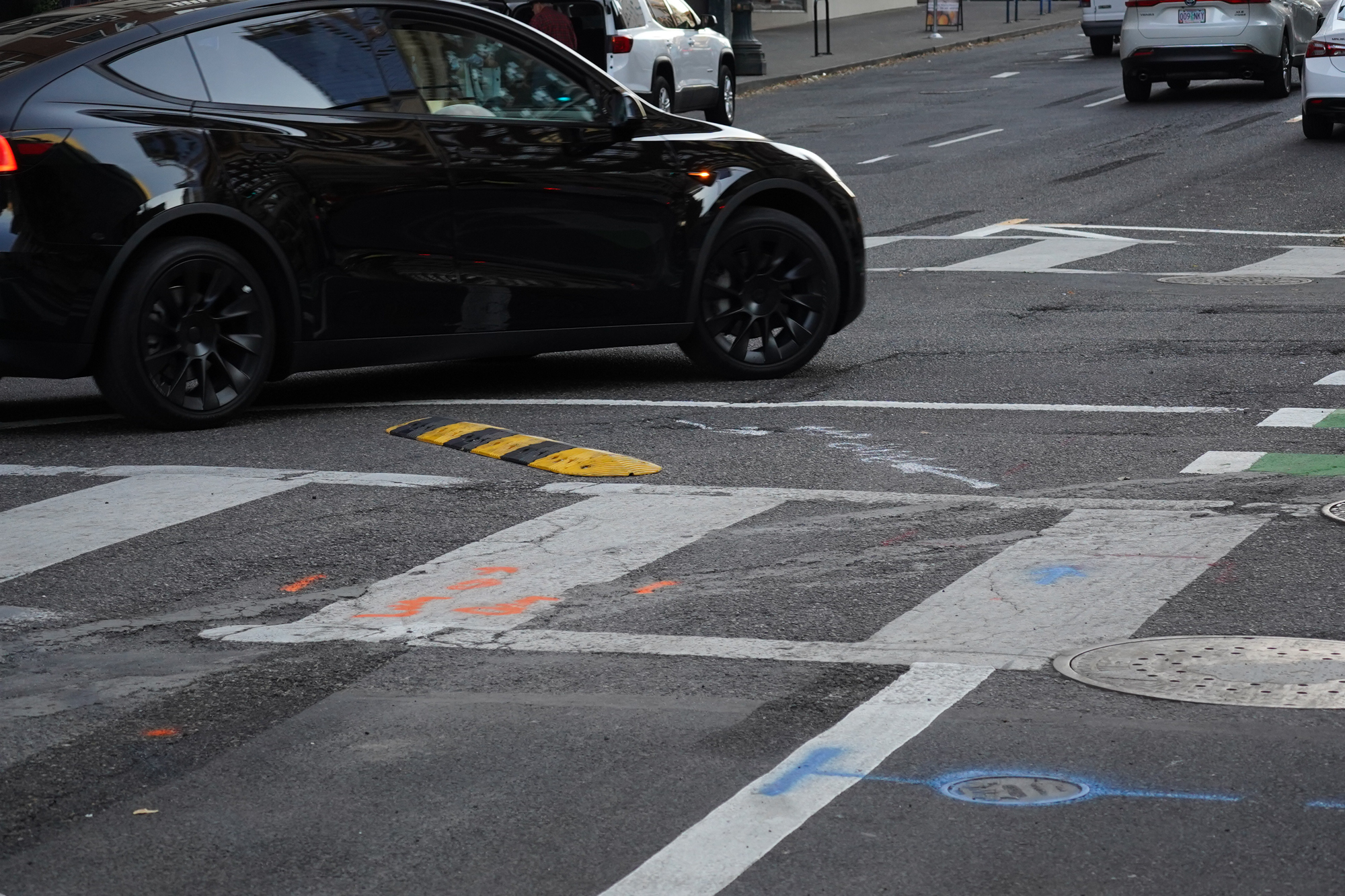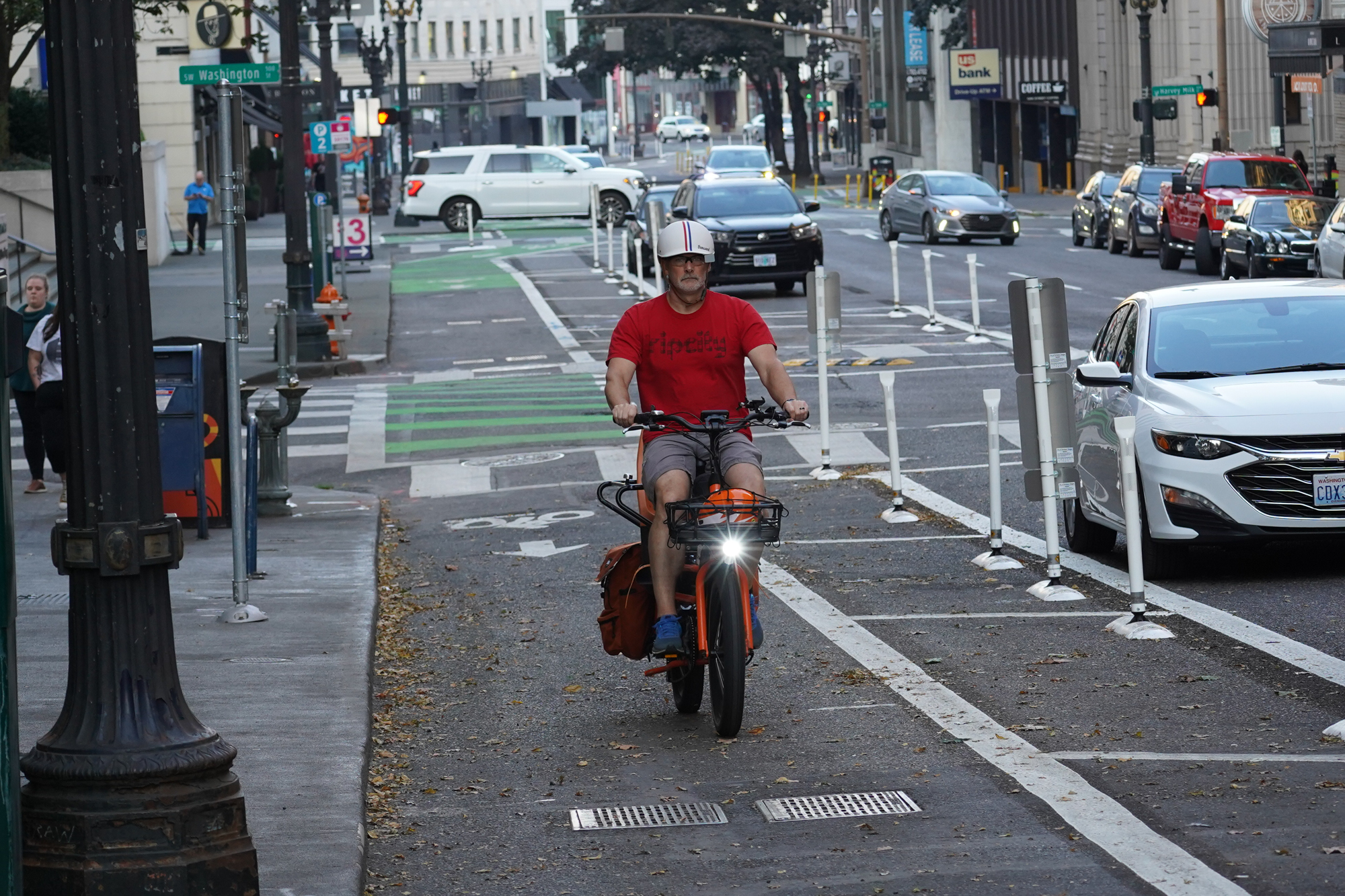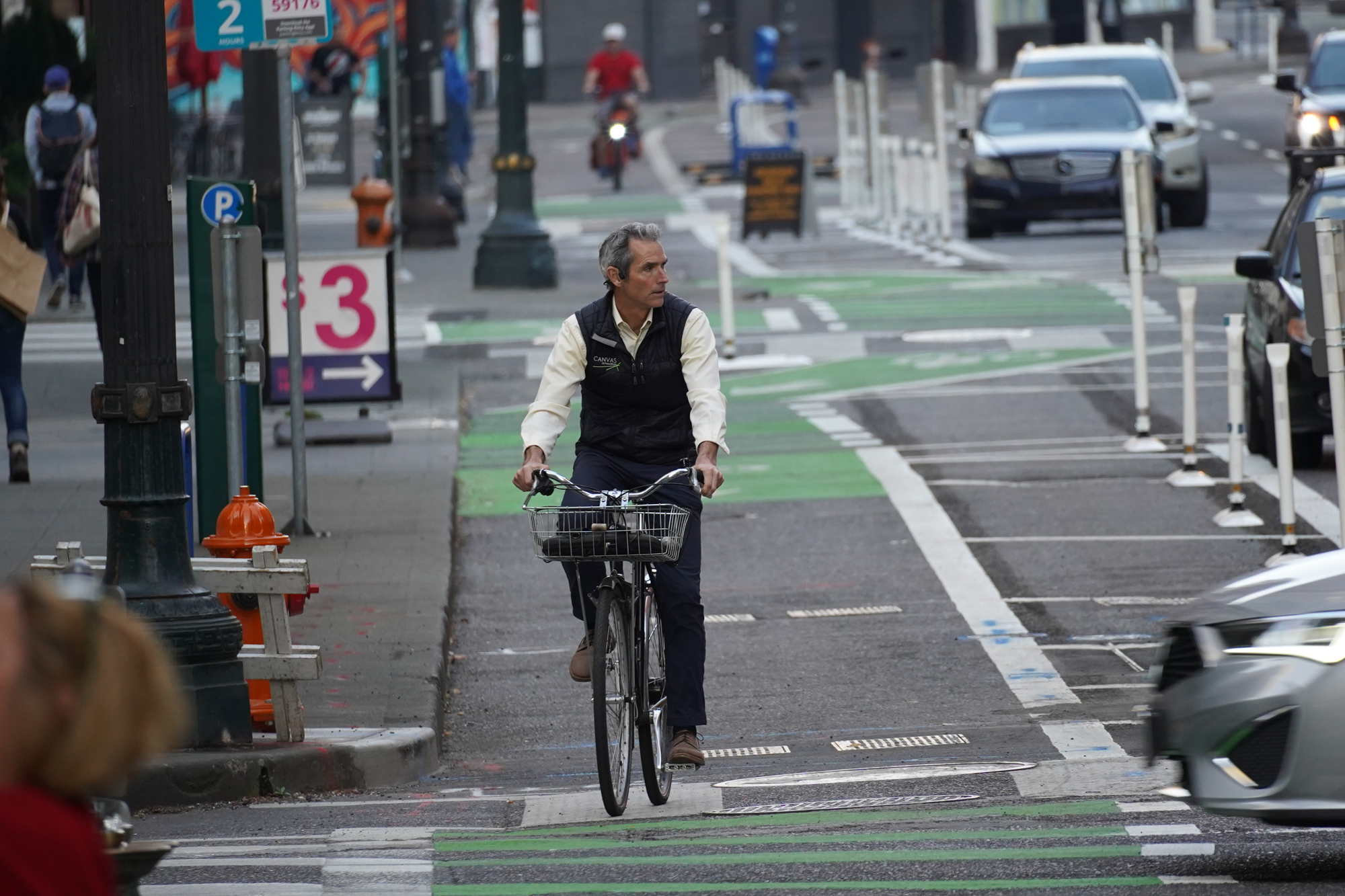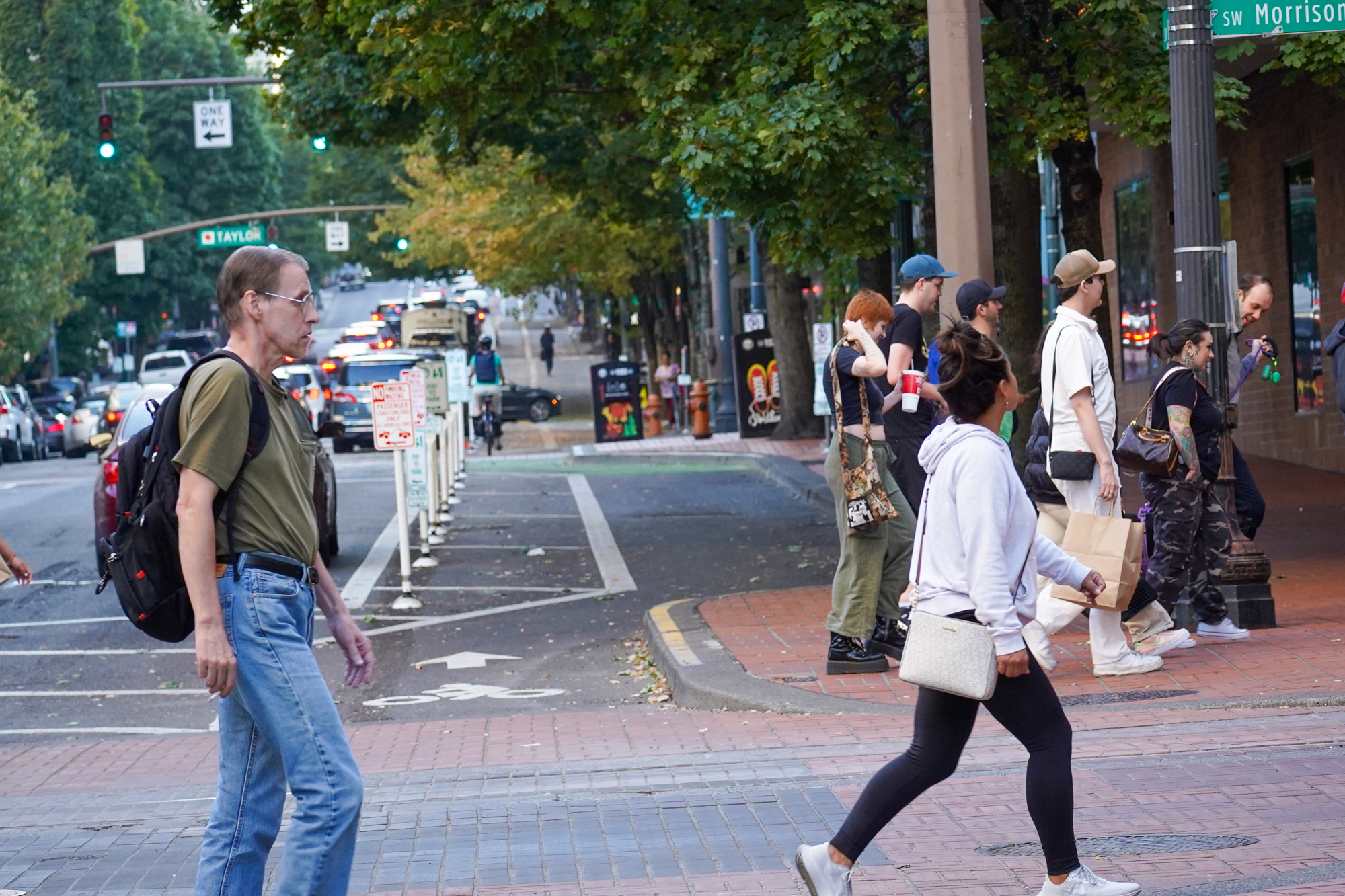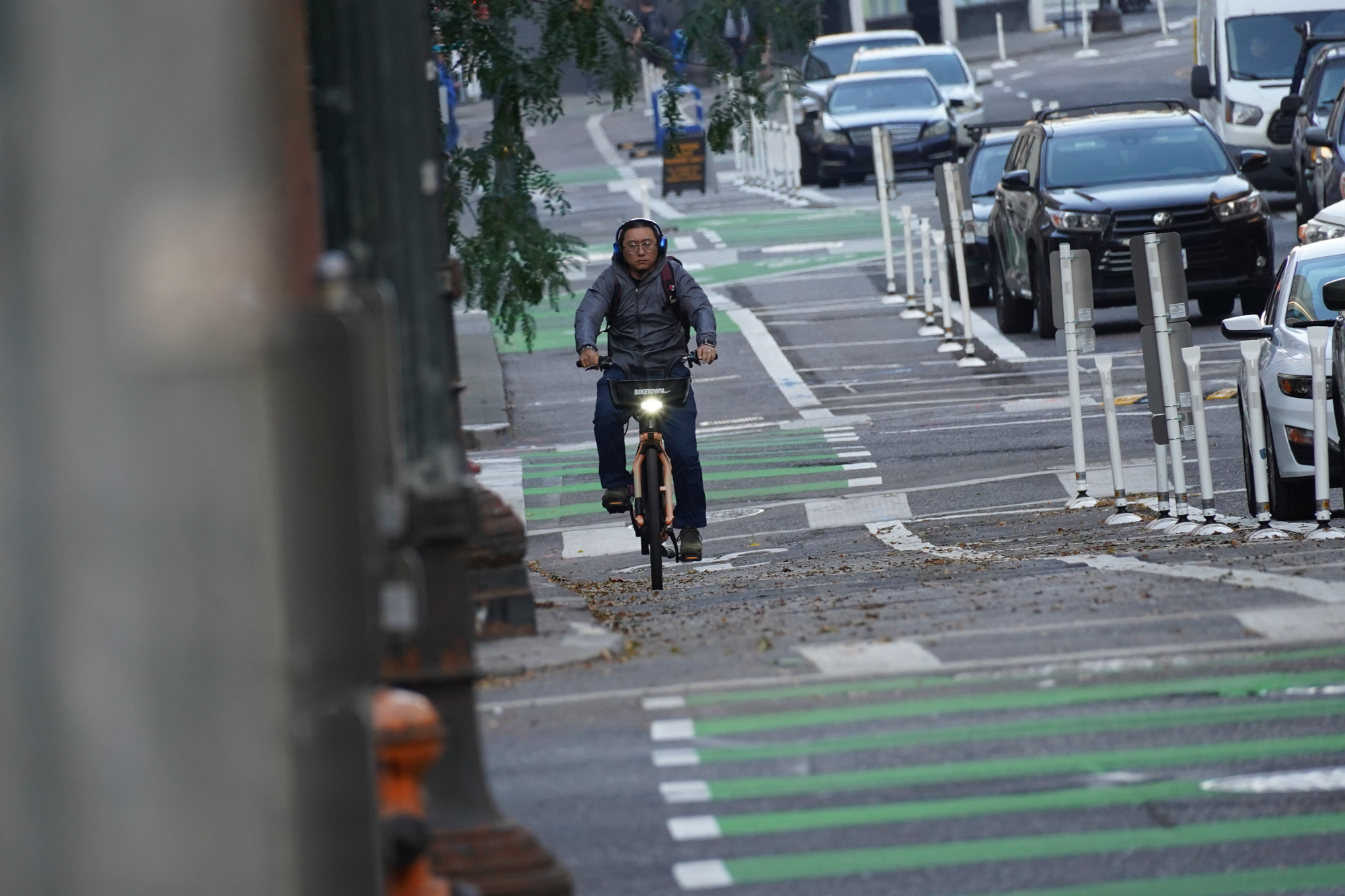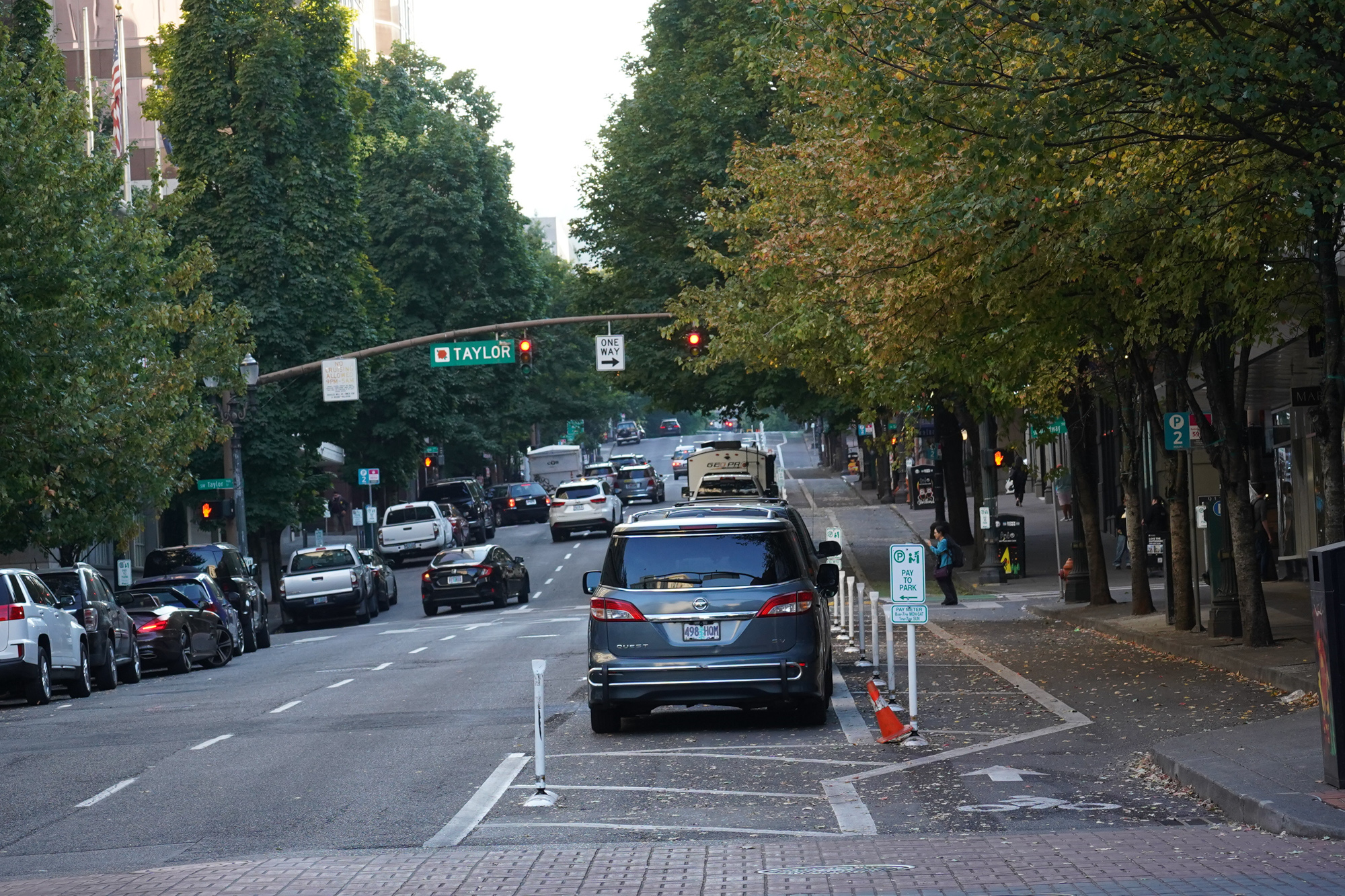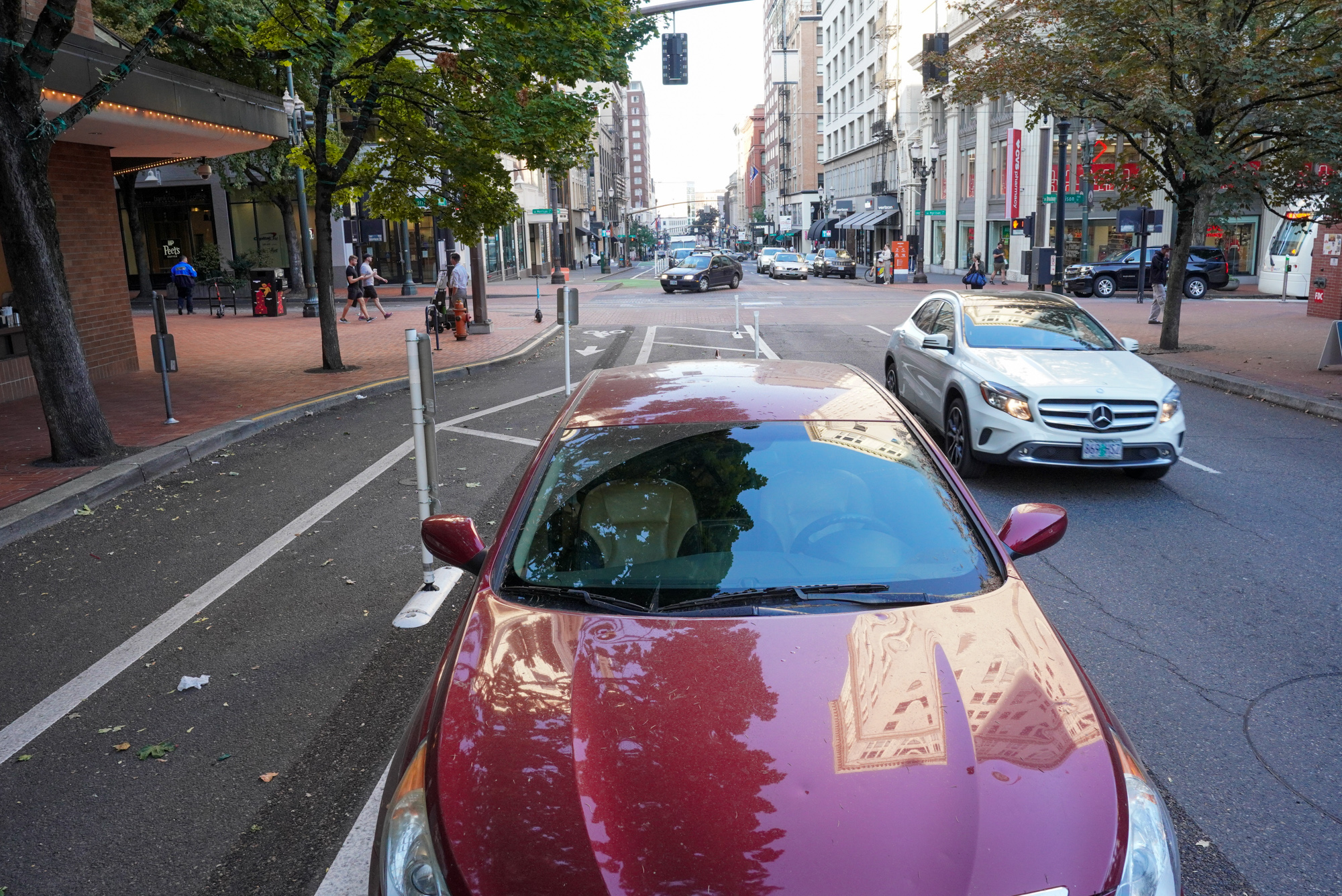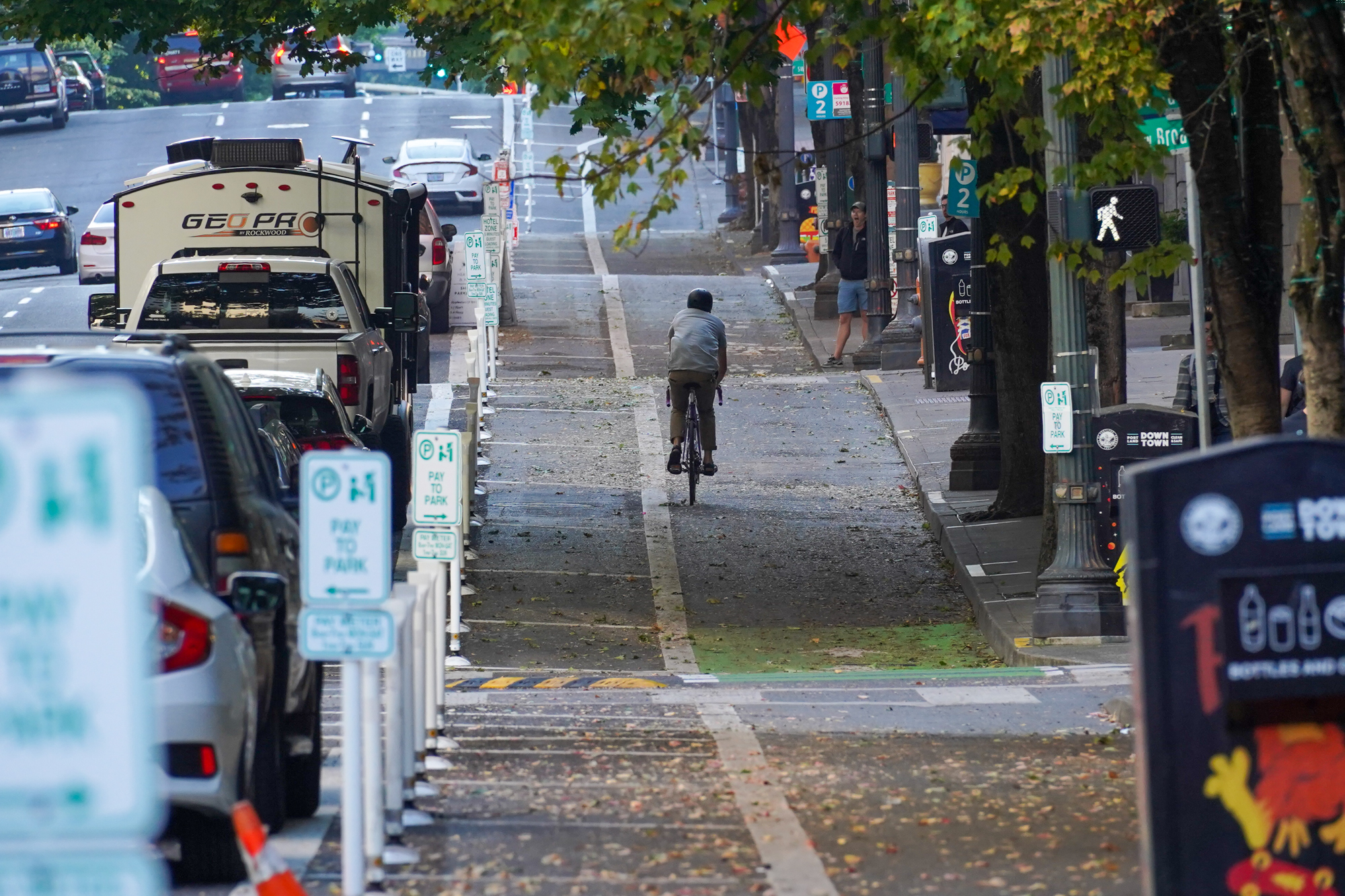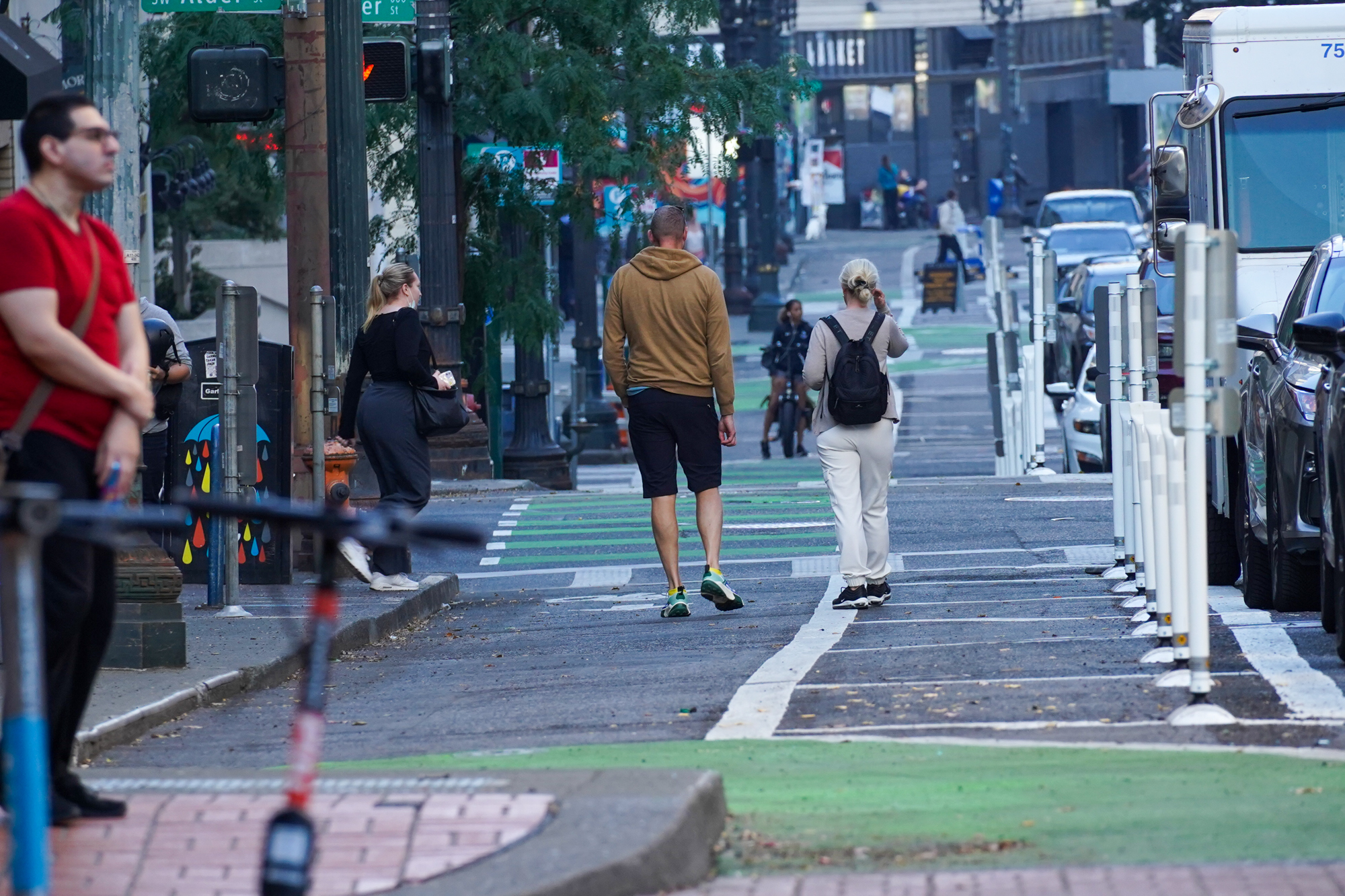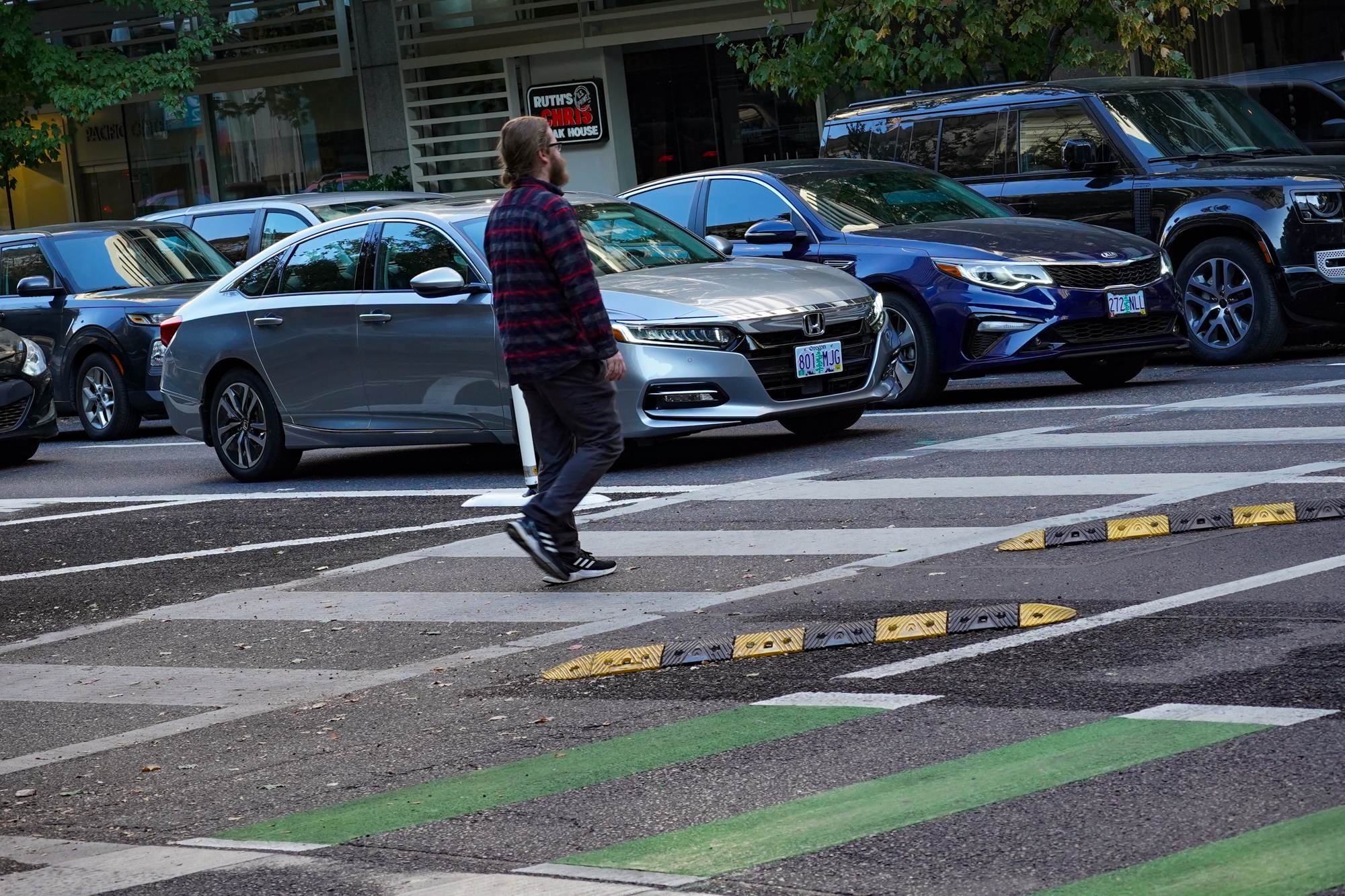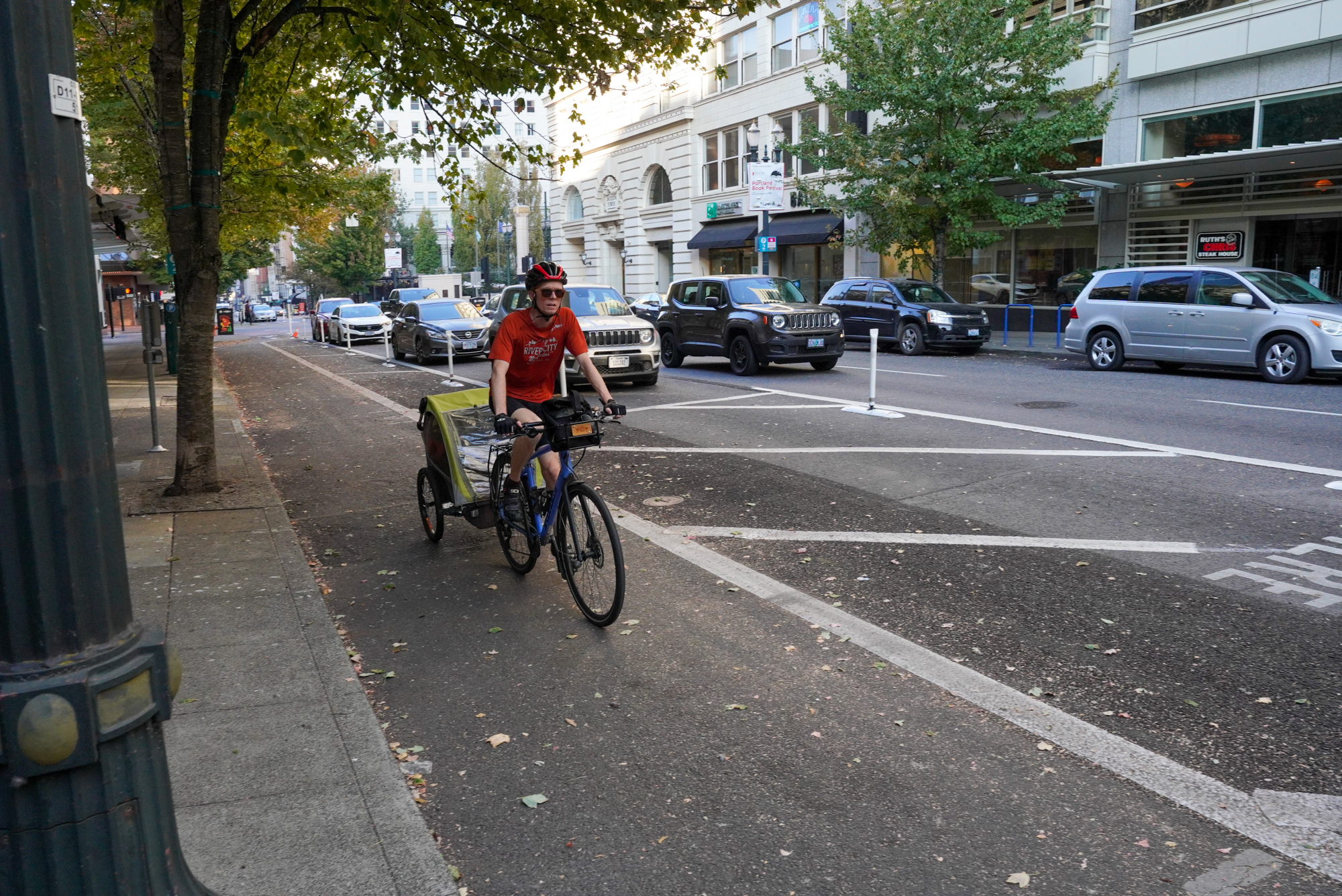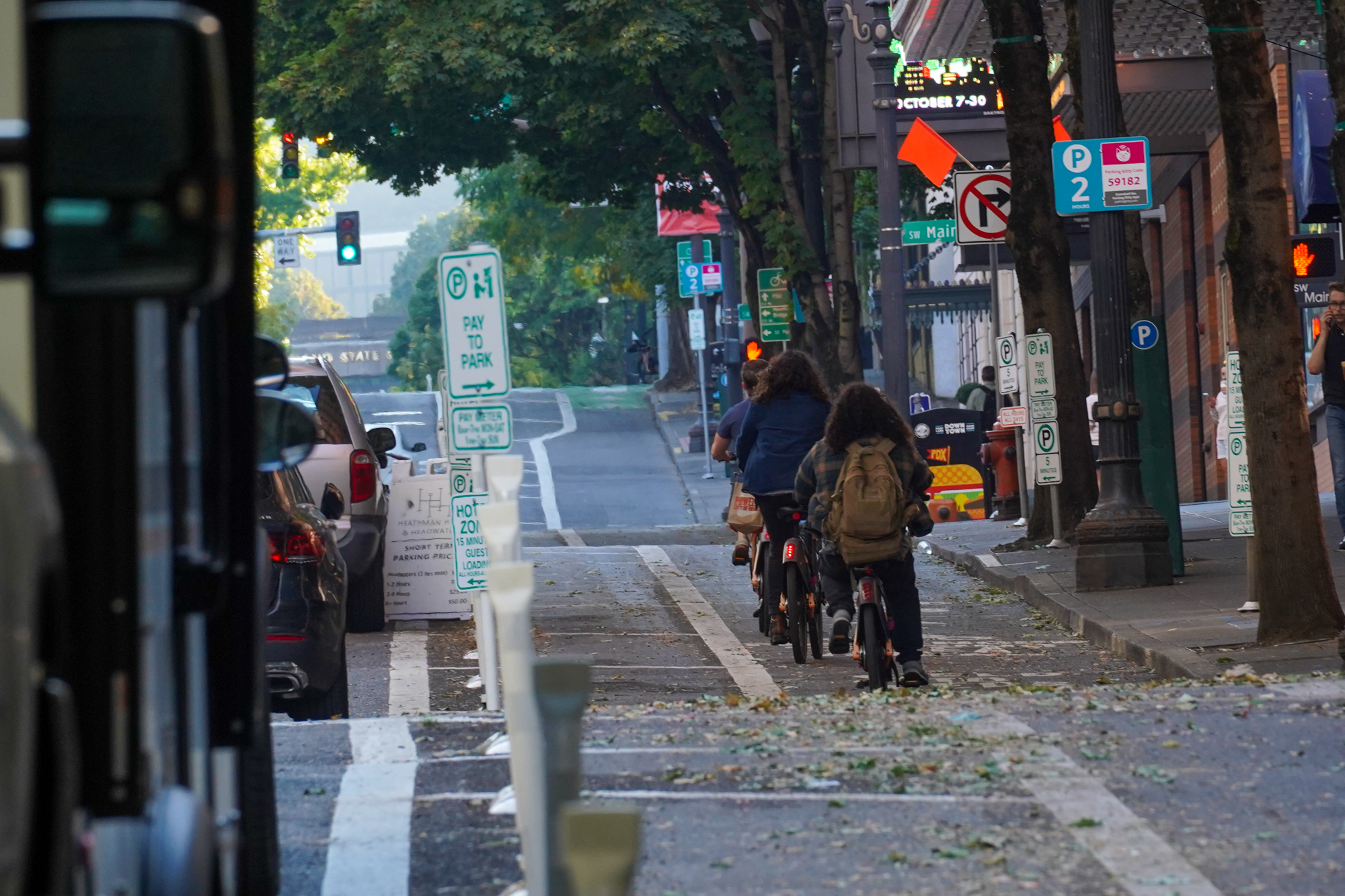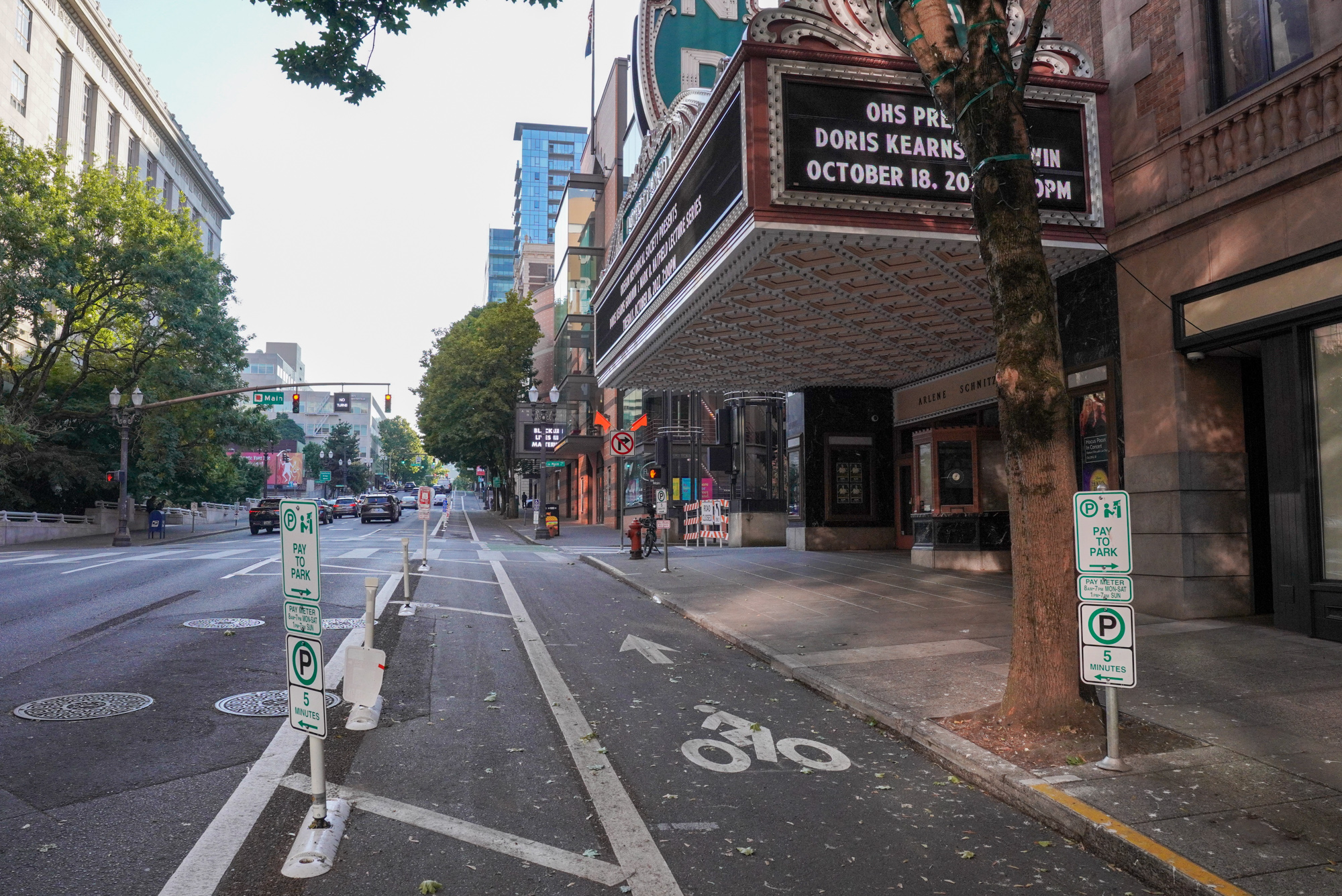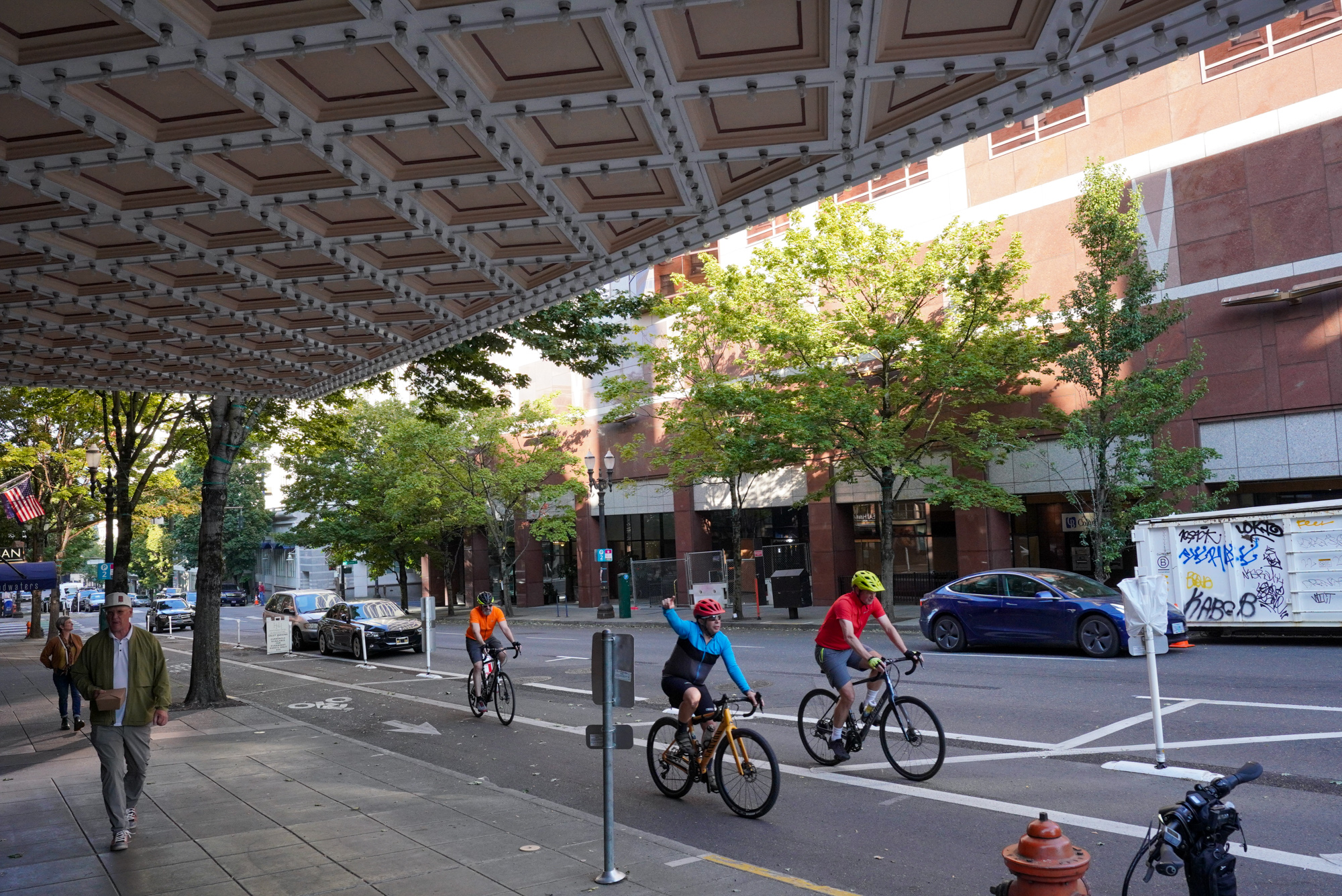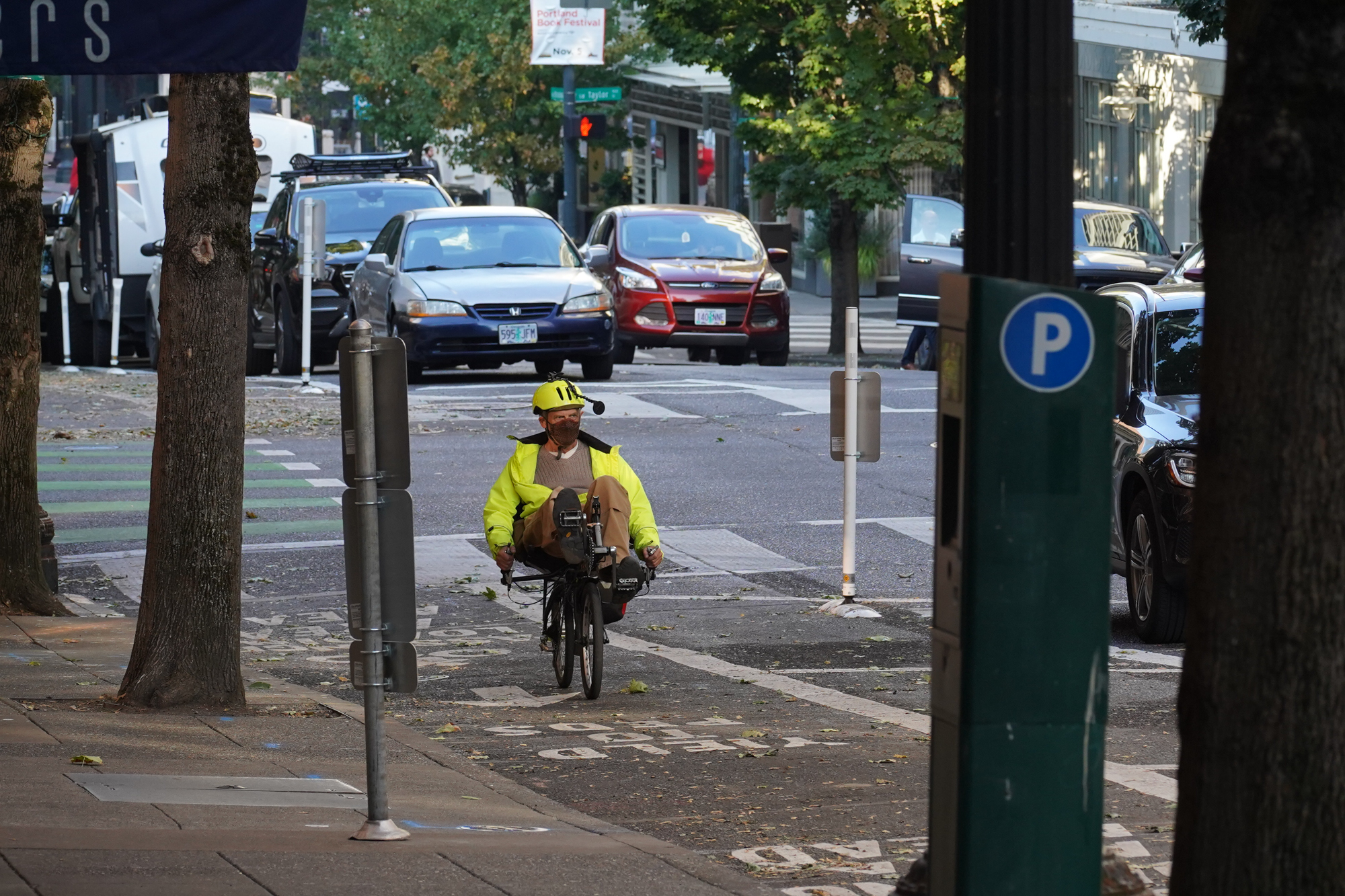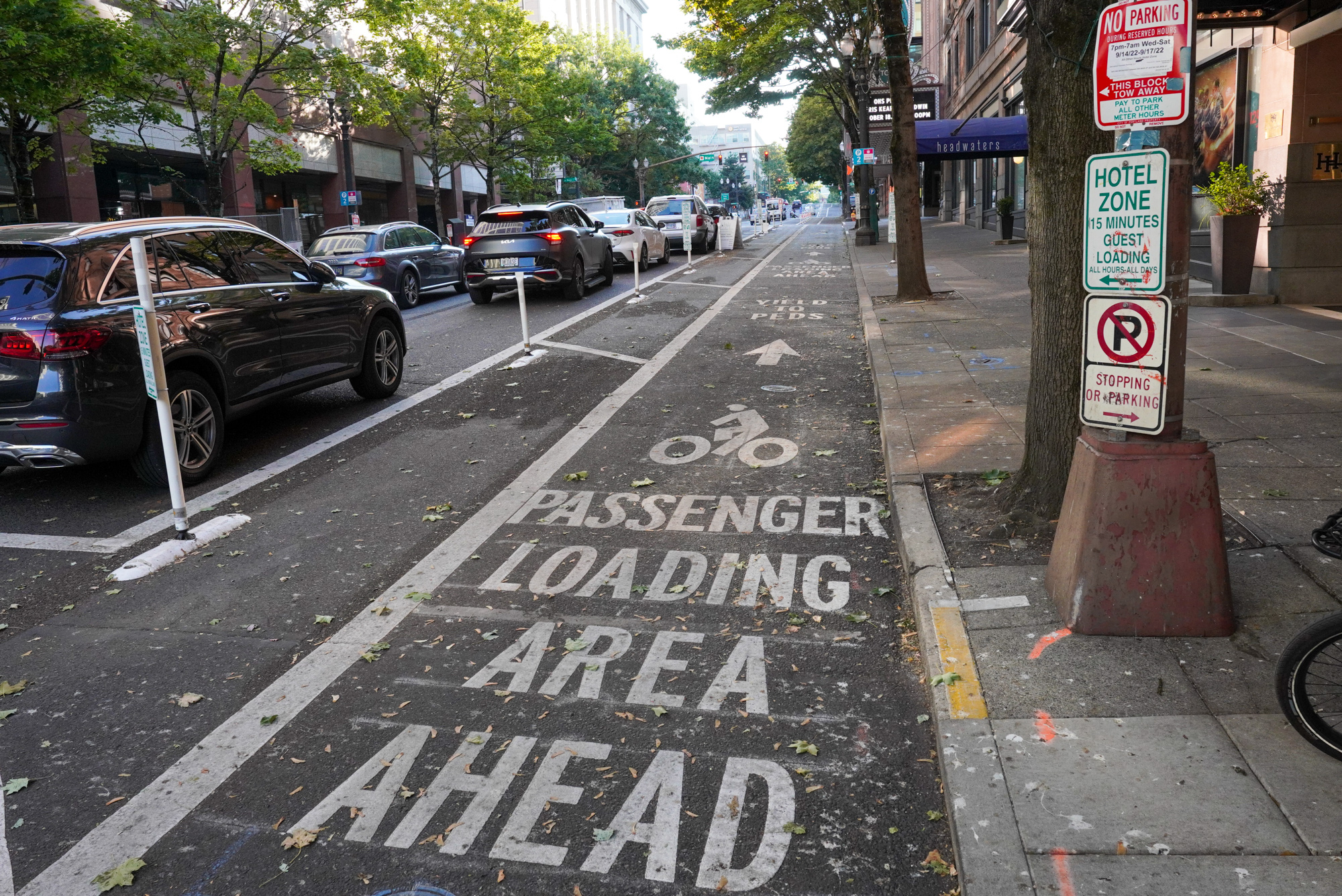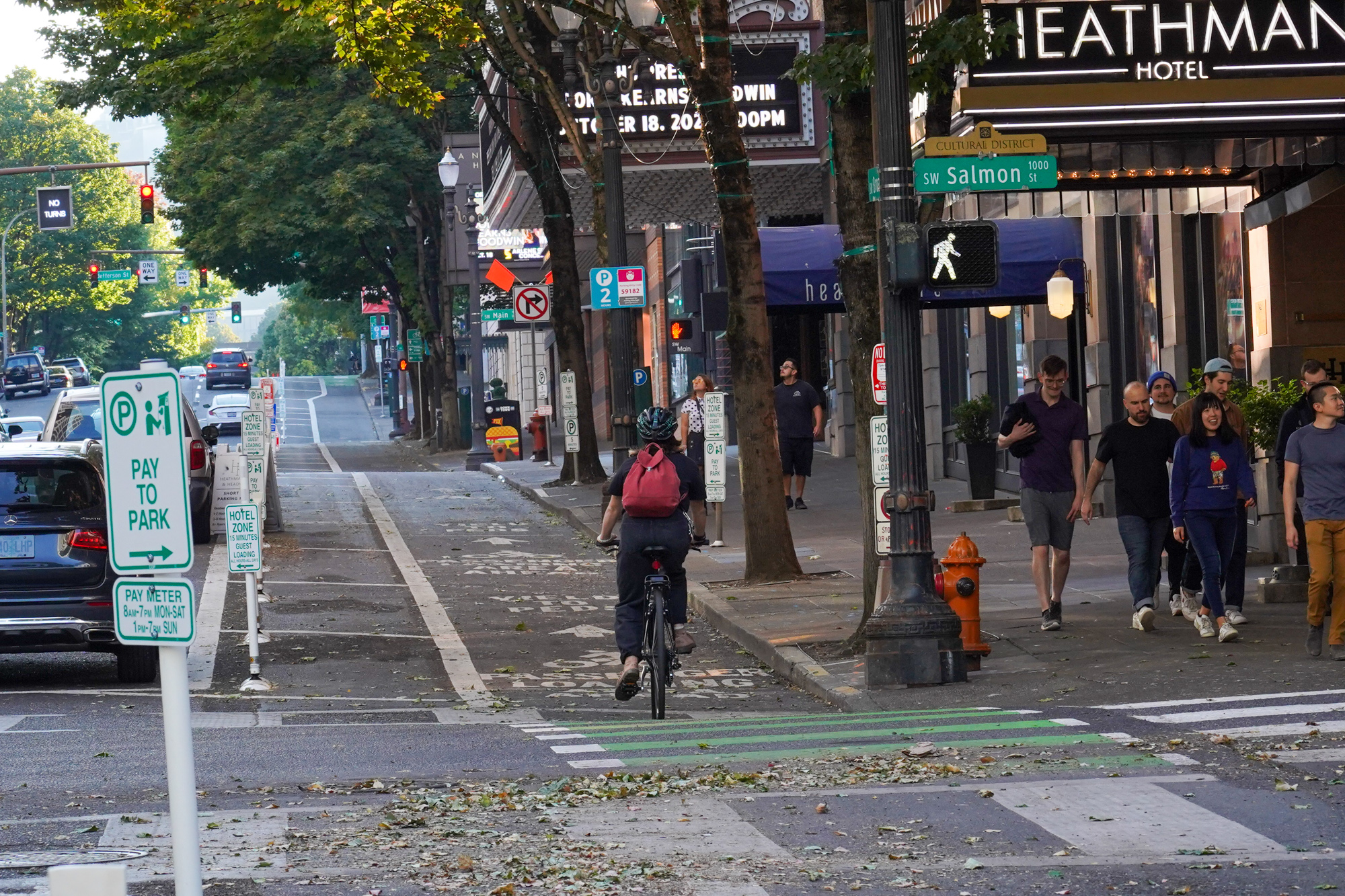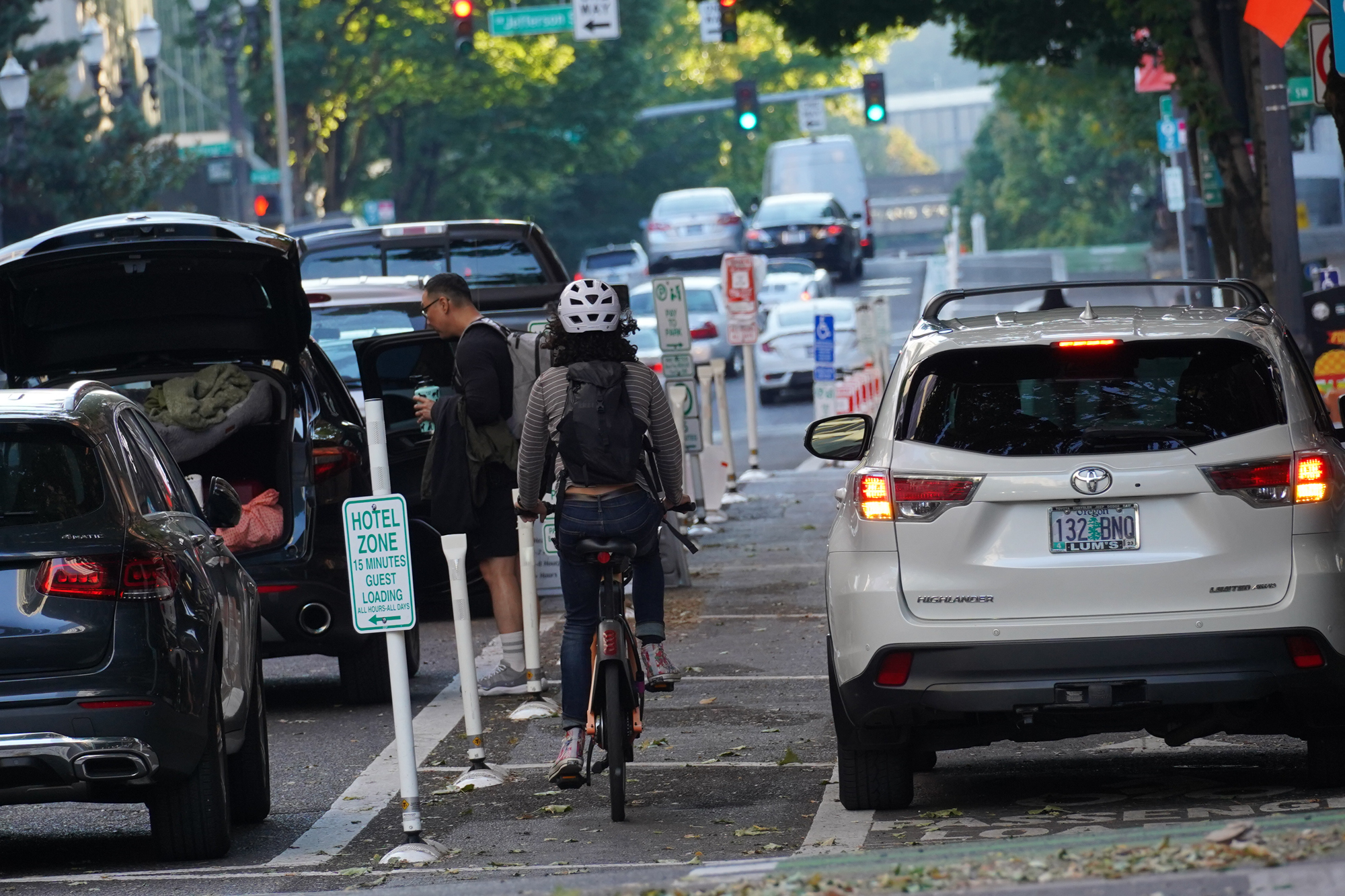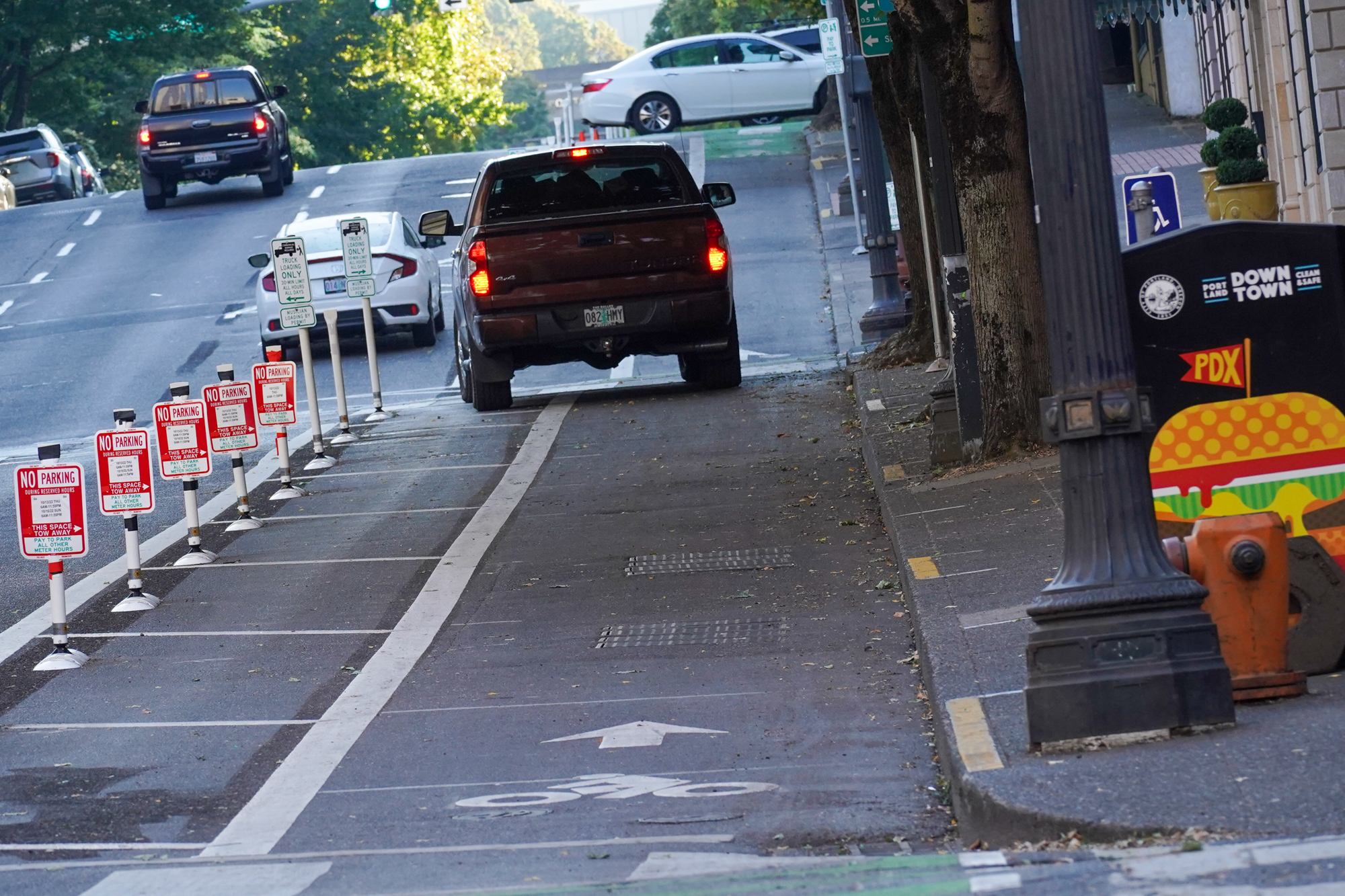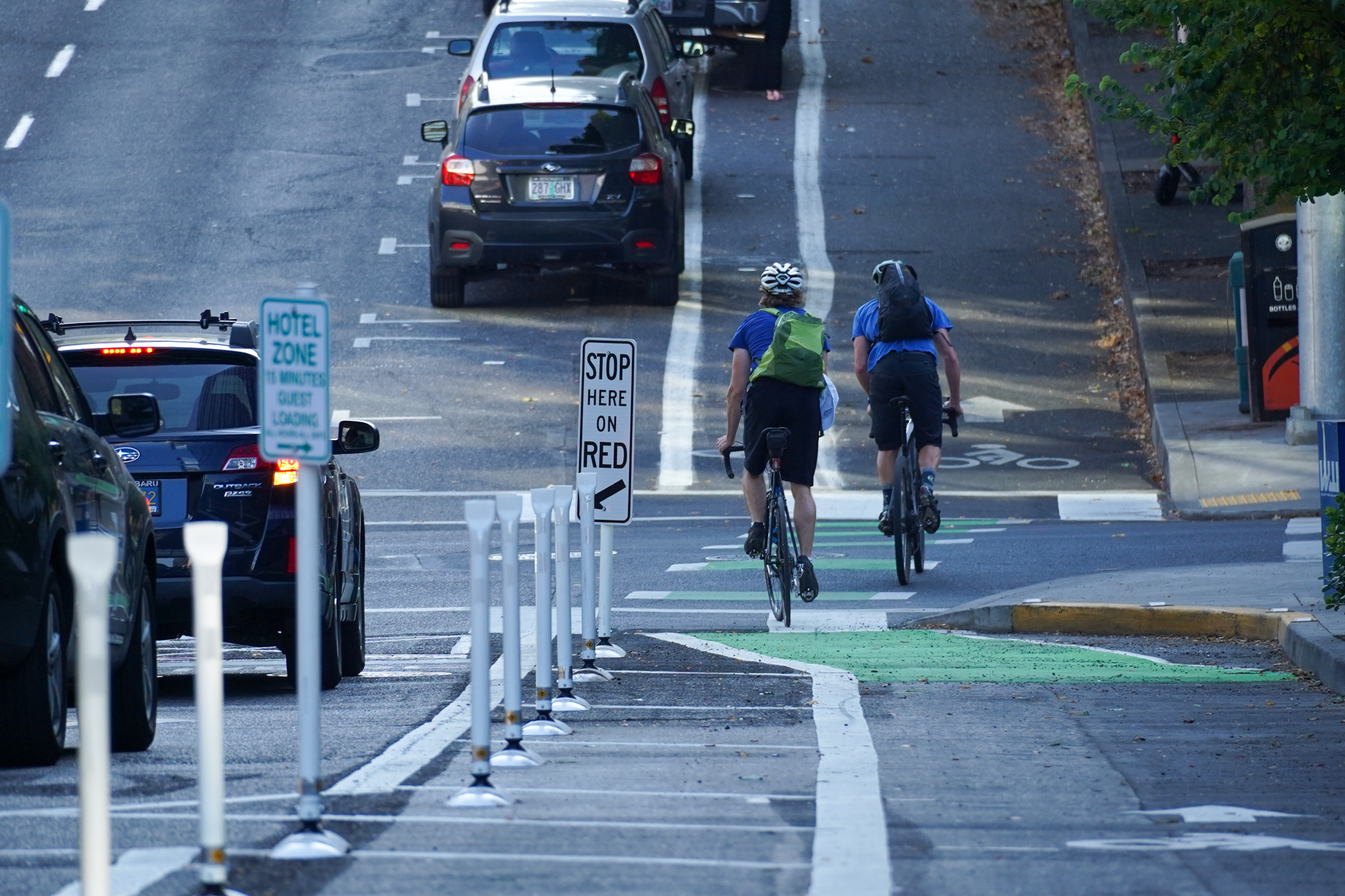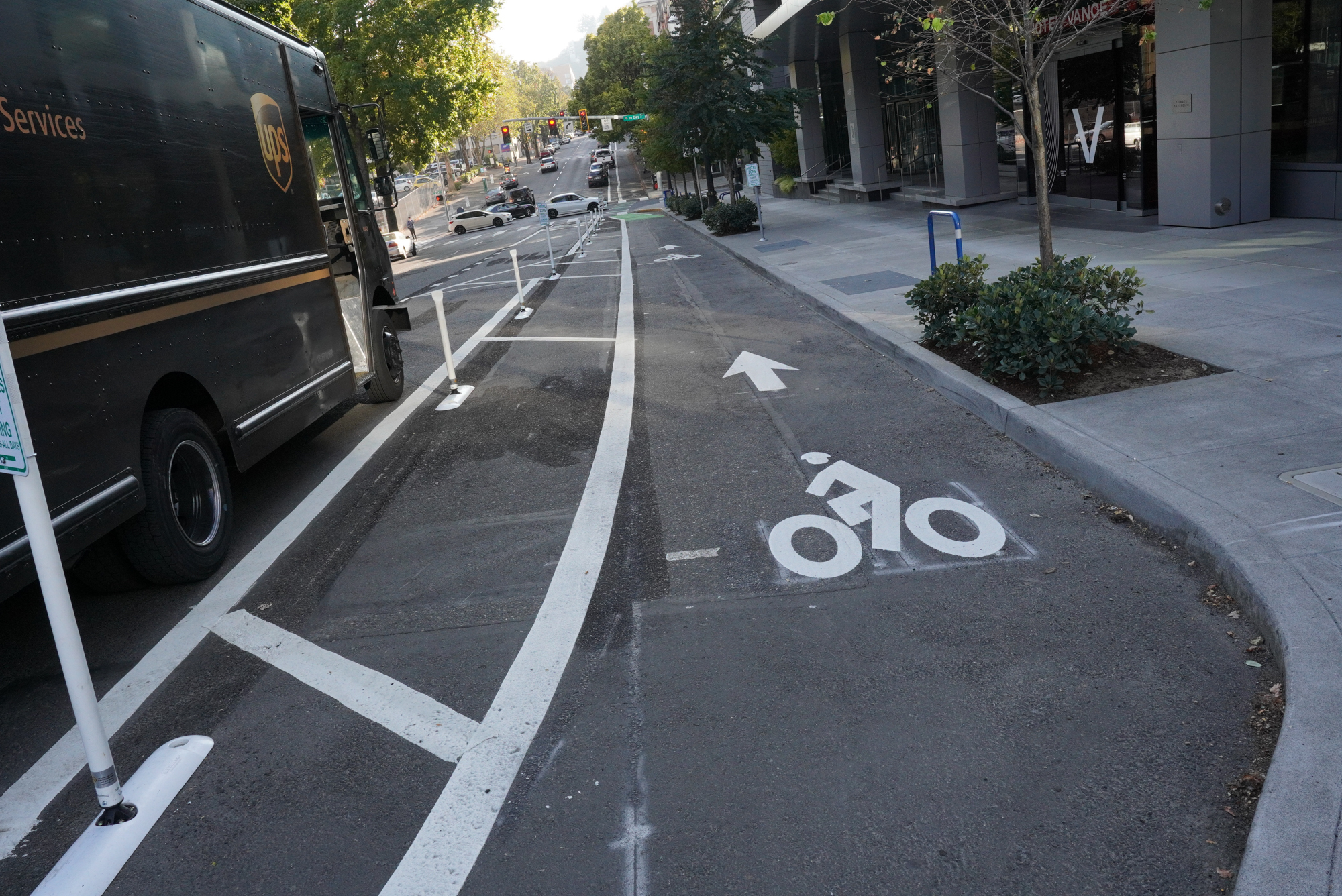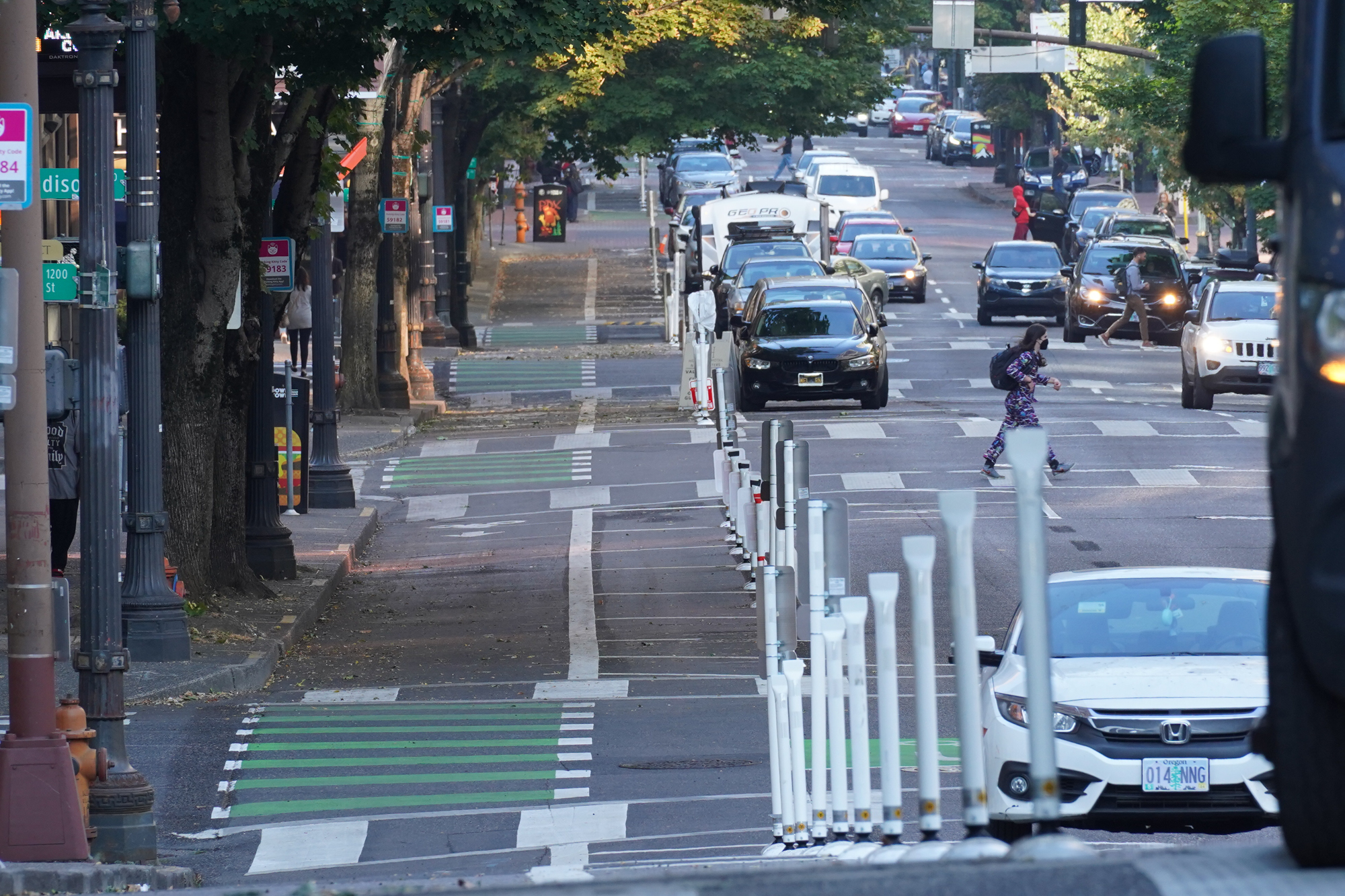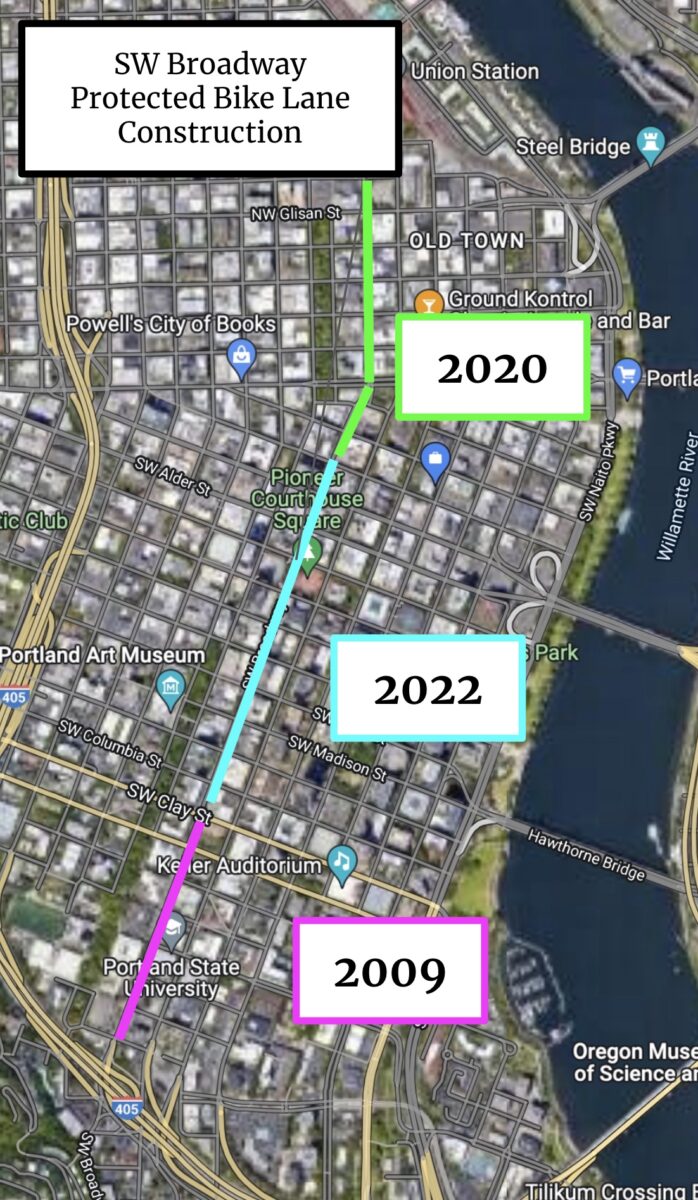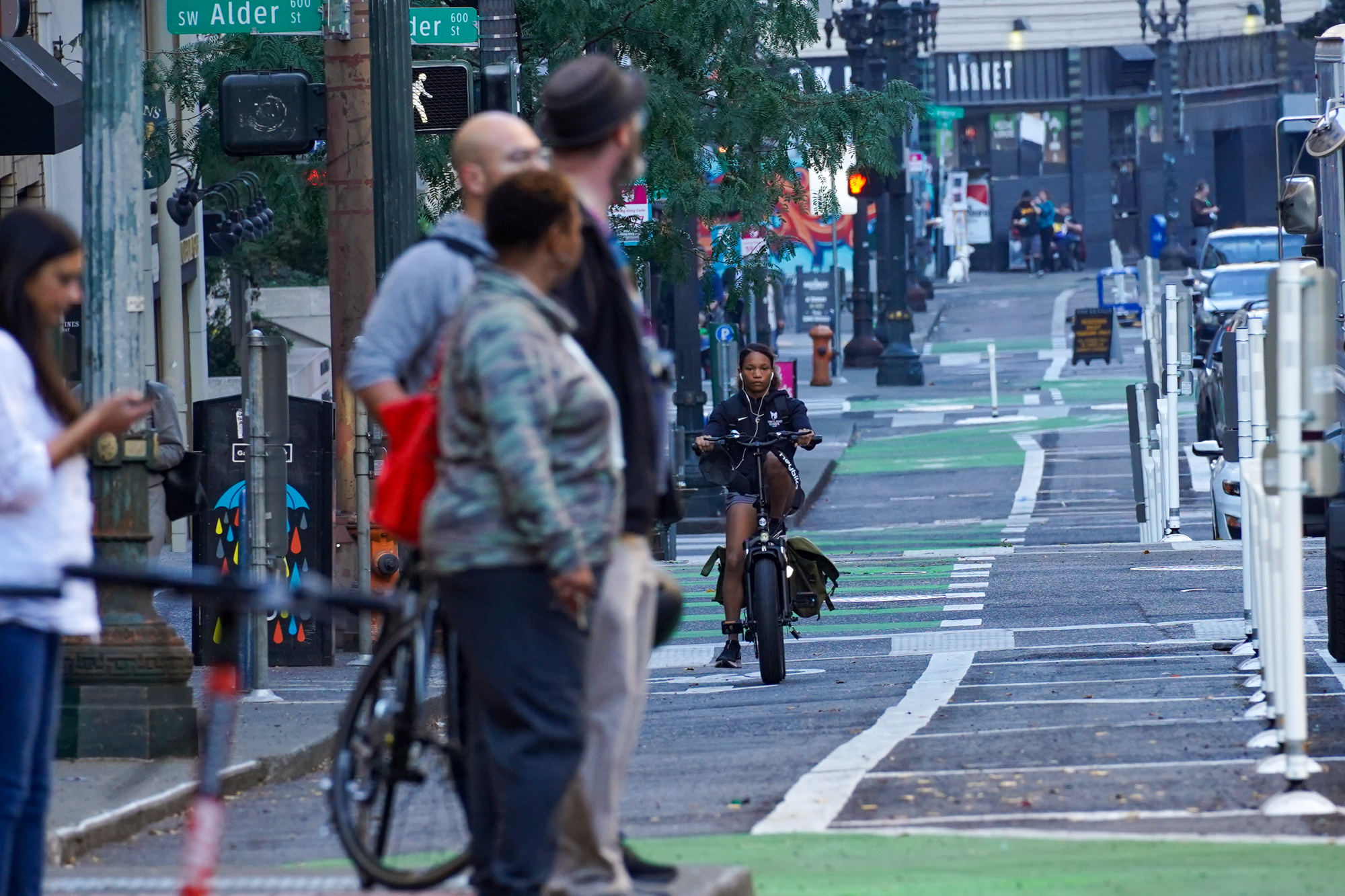
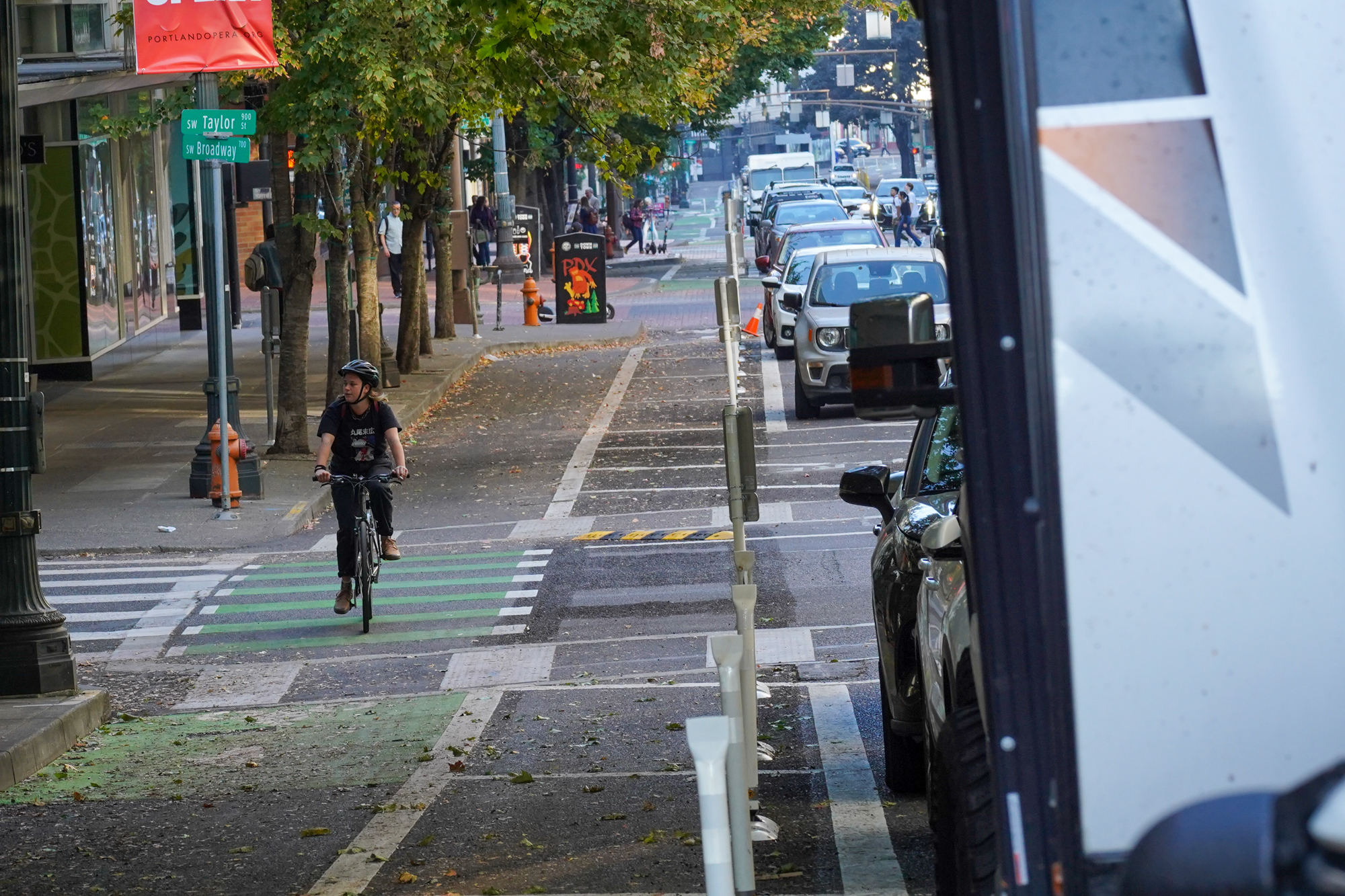
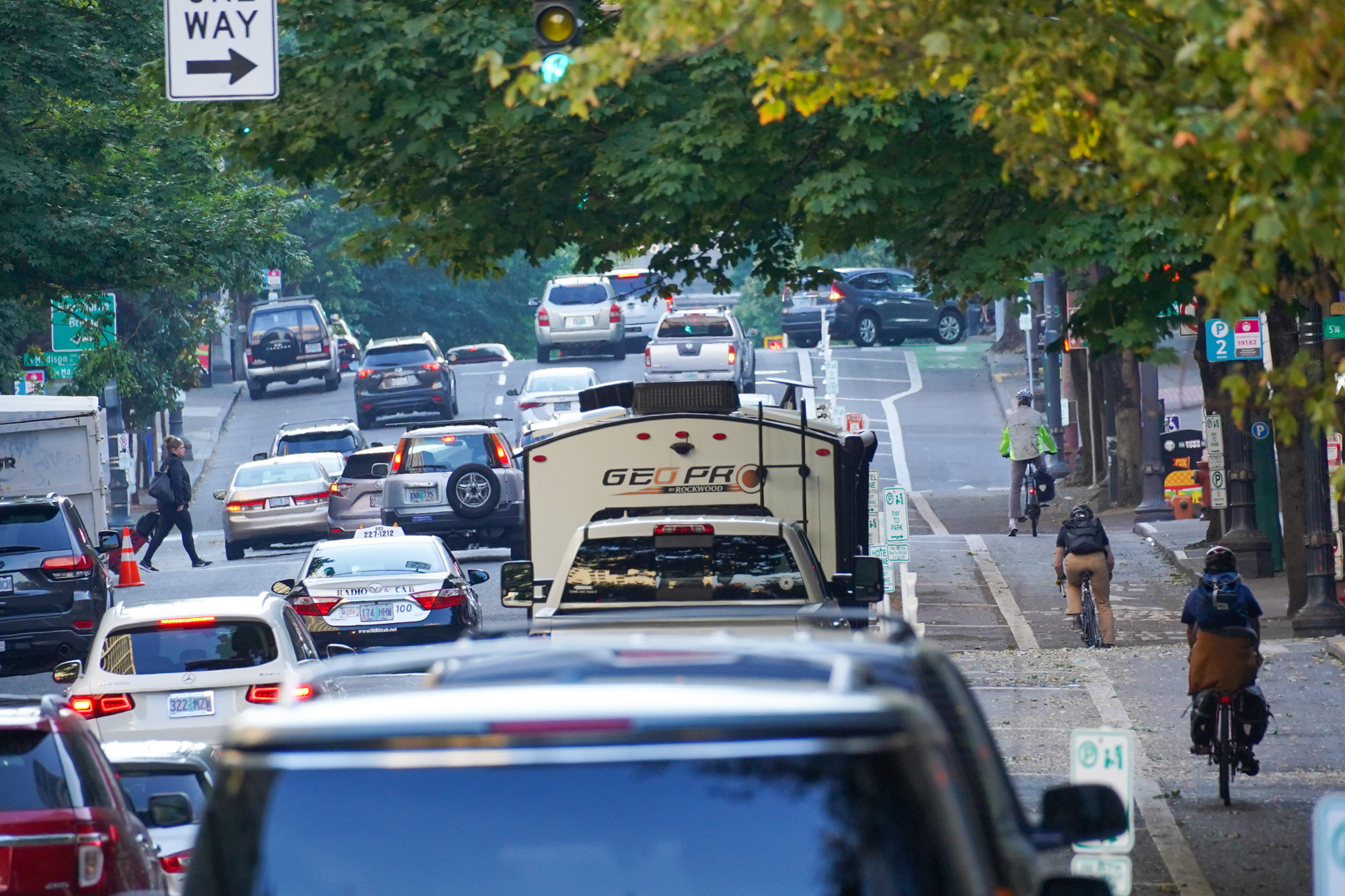
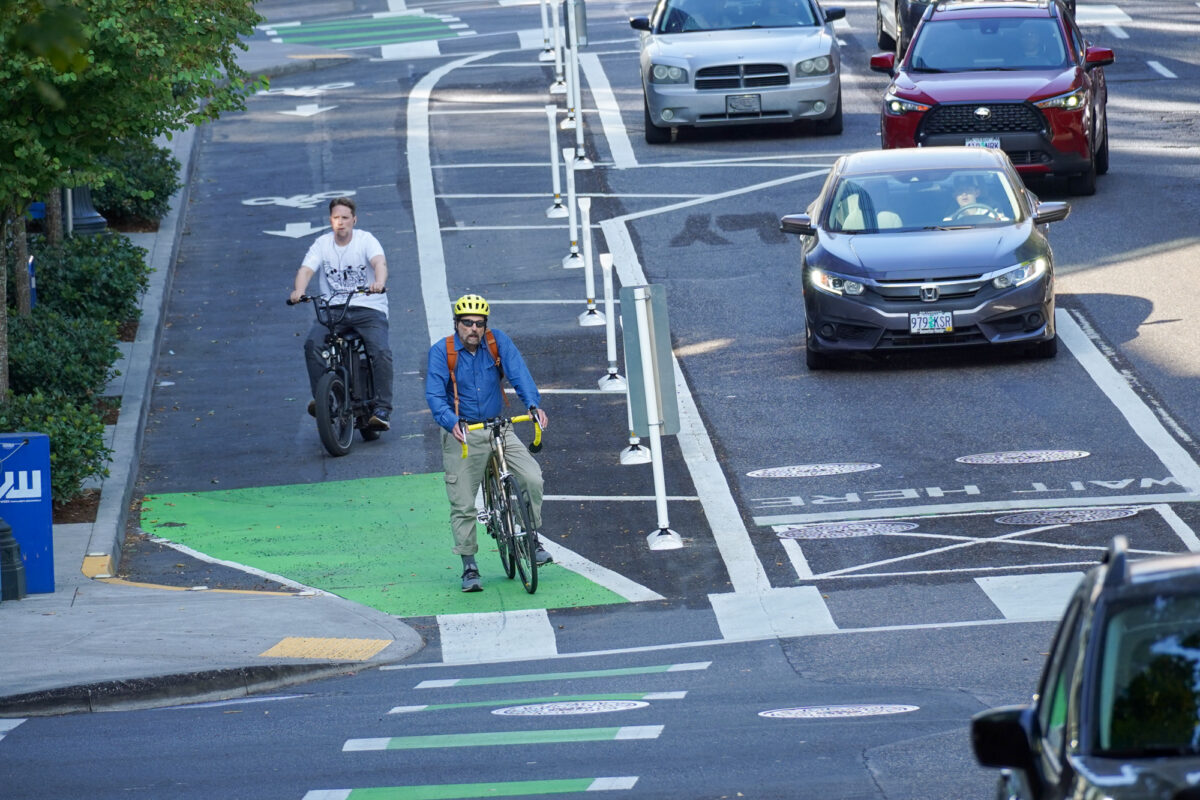
In April 2009, newly elected Mayor Sam Adams made a big announcement at conference held at Portland State University. He would oversee the installation of Portland’s first major “cycle-track” — what we now call protected bike lanes. Initially planned for the North Park Blocks, Adams switched the alignment to Southwest Broadway to avoid “intractable” pushback from the Portland Fire Bureau. The bike lane opened four months later and the rest was history.
Unfortunately, Adams only striped the most politically convenient segment; one that was entirely adjacent to the PSU campus and that had no driveways or busy cross-streets. The bike lane only lasted about 0.3 miles from SW Clay to Jackson (just before I-405, see map at right).
From the very start, the Portland Bureau of Transportation promised that this new protected cycling lane would extend all the way to the Broadway Bridge. But it would take 11 more years for the next segment to be installed. We got another 0.4 miles — from NW Hoyt/Broadway Bridge to Oak — in November 2020. As nice as that was, the most high-profile section of Broadway was still an embarrassing and stressful door-zone bike lane (see before photos below).
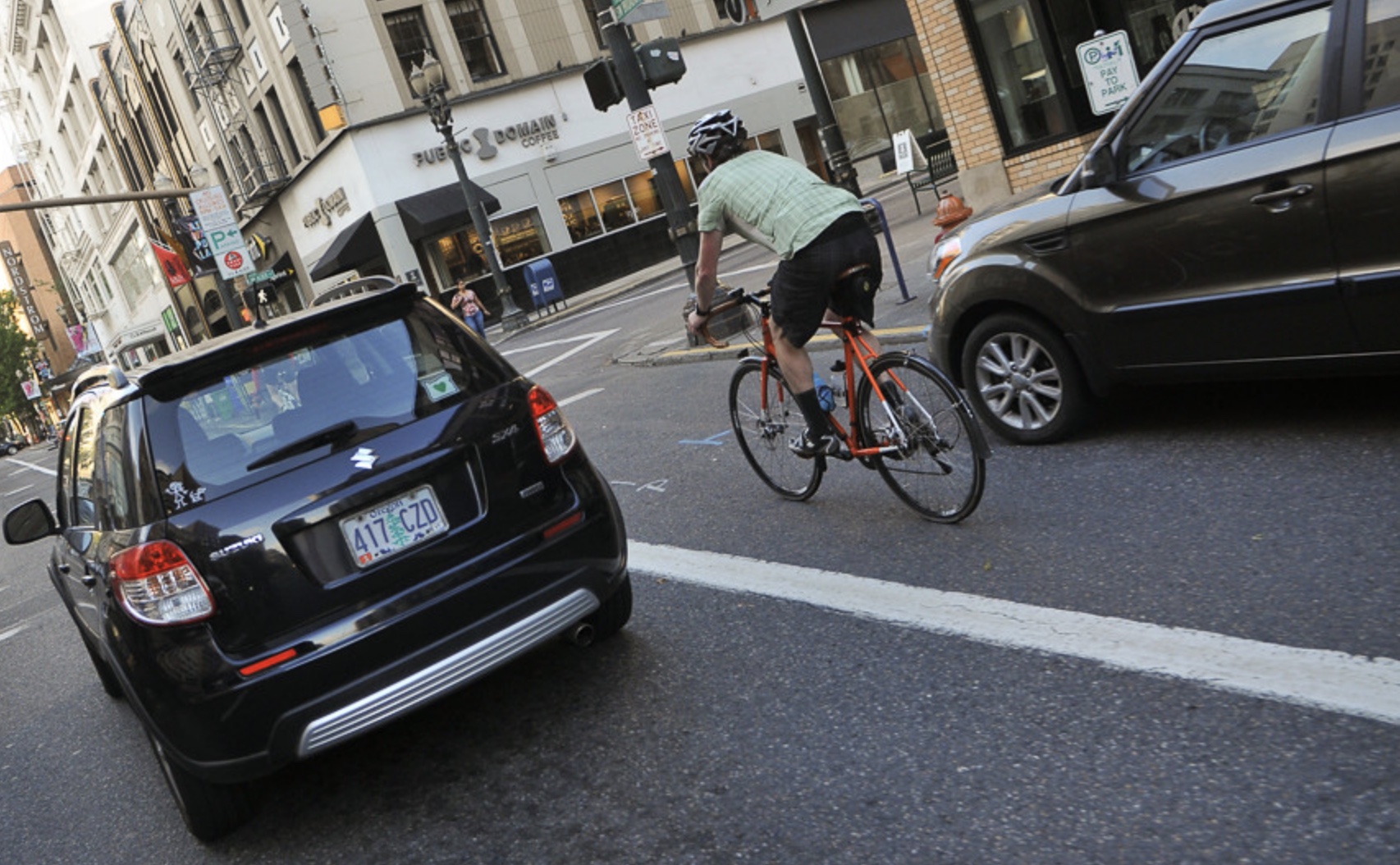
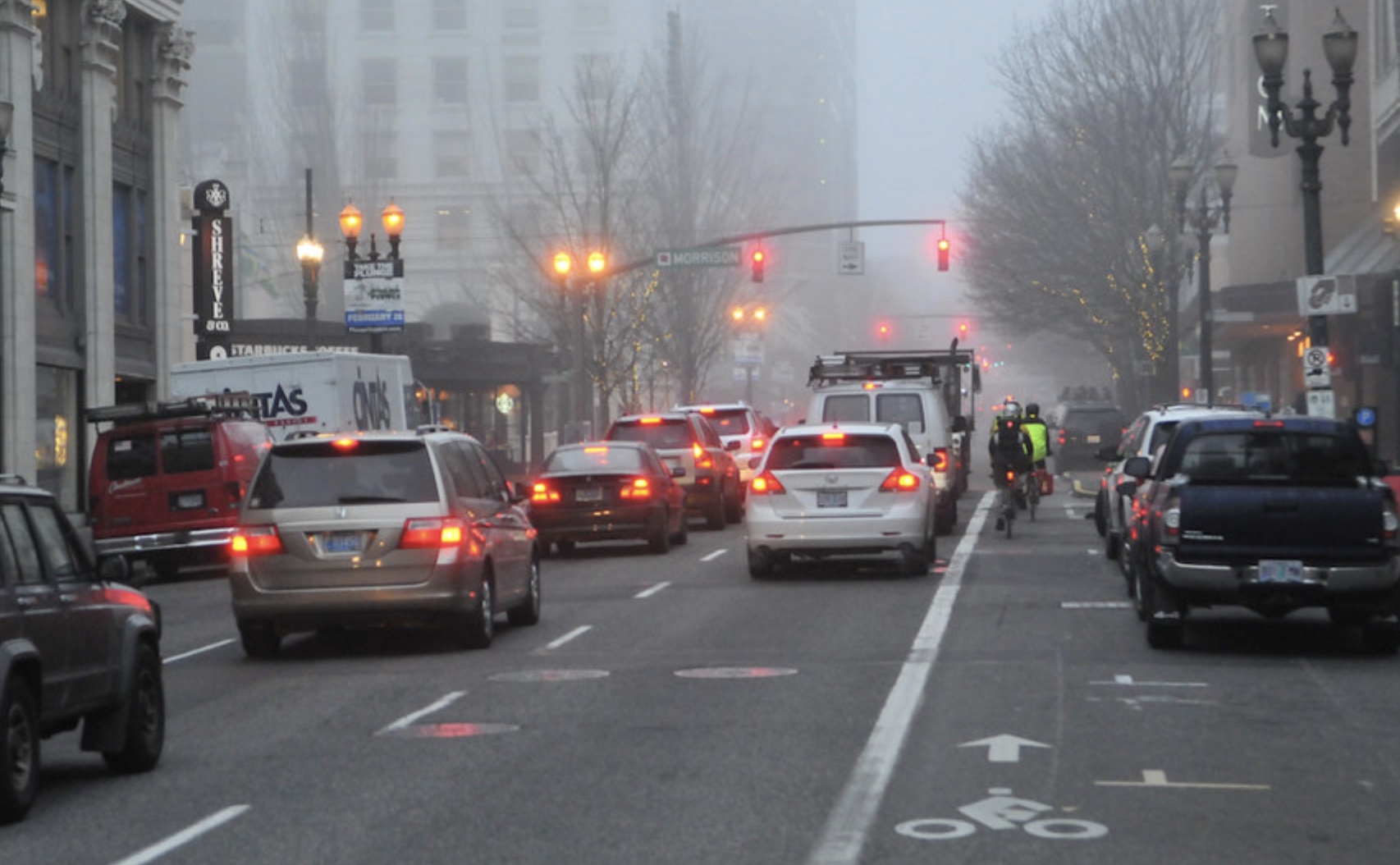
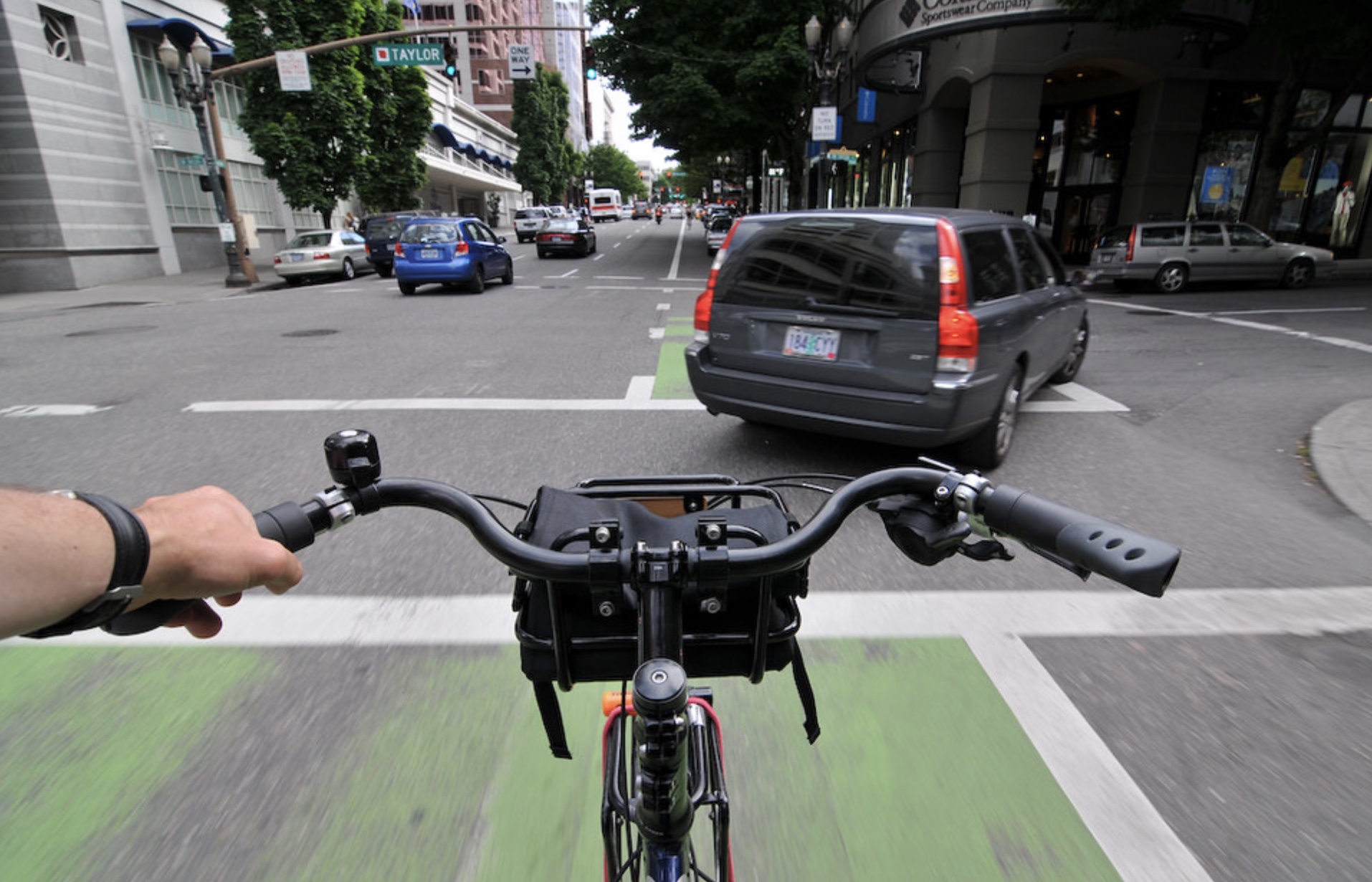
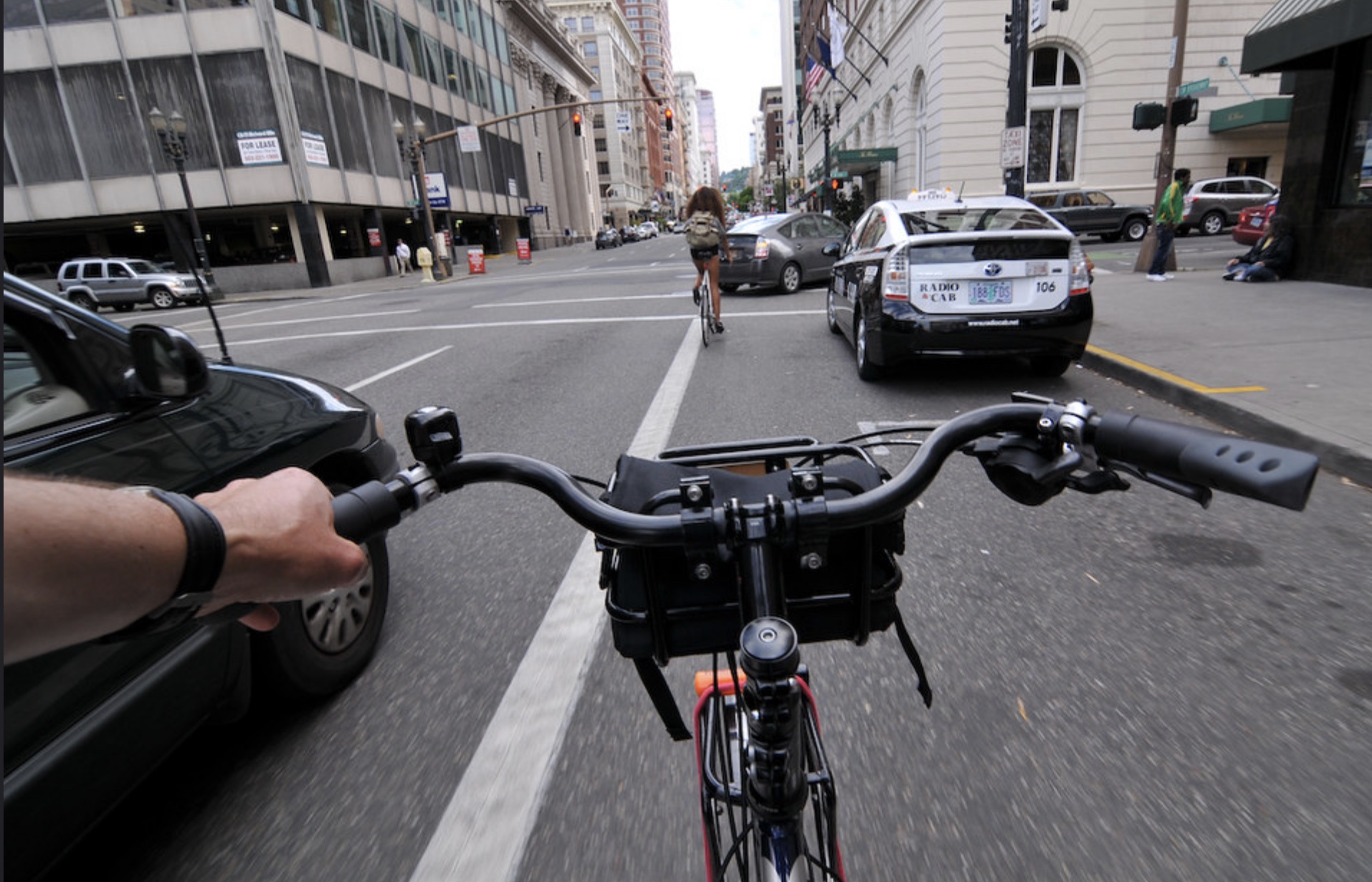
In 2016, a group of planners (one of them, Nick Falbo, who now works for PBOT) did a pop-up demonstration project called “Better Broadway” that shared a vision of what a protected bike lane could look like. We don’t have to imagine any longer!
Now, 13 years after the first segment was built, we’ve found our missing piece: There’s a continuous, (relatively) high-quality parking-protected bike lane for the entire 1.3 miles on Portland’s marquee downtown street! And PBOT saved the best for last!
I took a closer look at the project Monday afternoon and came away impressed and happy.
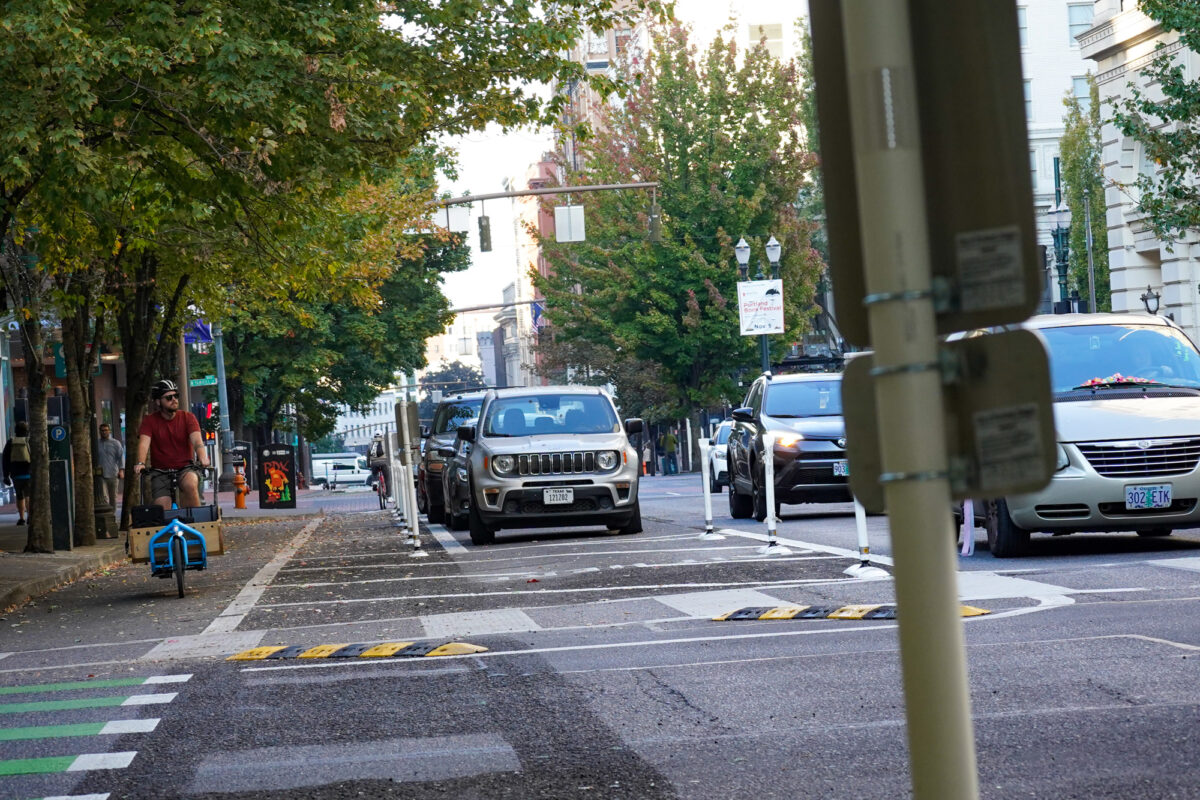
By now we’ve seen this striping pattern all over the city. The new bike lane is curbside and drivers can park cars in a floating parking lane that’s in the street. Those parked cars, along with a buffer zone, create protection between bike riders and other traffic. Besides the opening of car doors, the other main hazard on Broadway before this bike lane went in was right-hooks. PBOT had installed green bike boxes at the most problematic corners (like SW Taylor and SW Washington), but the risks never went away.
Now there’s even more space between right-turning drivers and bike riders (see below). And it felt and looked much safer to me. At the intersection with SW Columbia, there’s the bike lane and a very wide buffer to the nearest other lane. At Taylor and Washington, PBOT has installed traffic-calming curbs in the corner in addition to space. It’s all in the name of safer right turns. As you can see in the photos, drivers now turn so far from bike riders, and at such a sharper angle, that they are almost staring directly at the bike lane by the time they cross it. This is excellent visibility and makes right-hooks much less likely. (PBOT has also added green coloring to the bike lane at crossings and other potential conflict zones.)
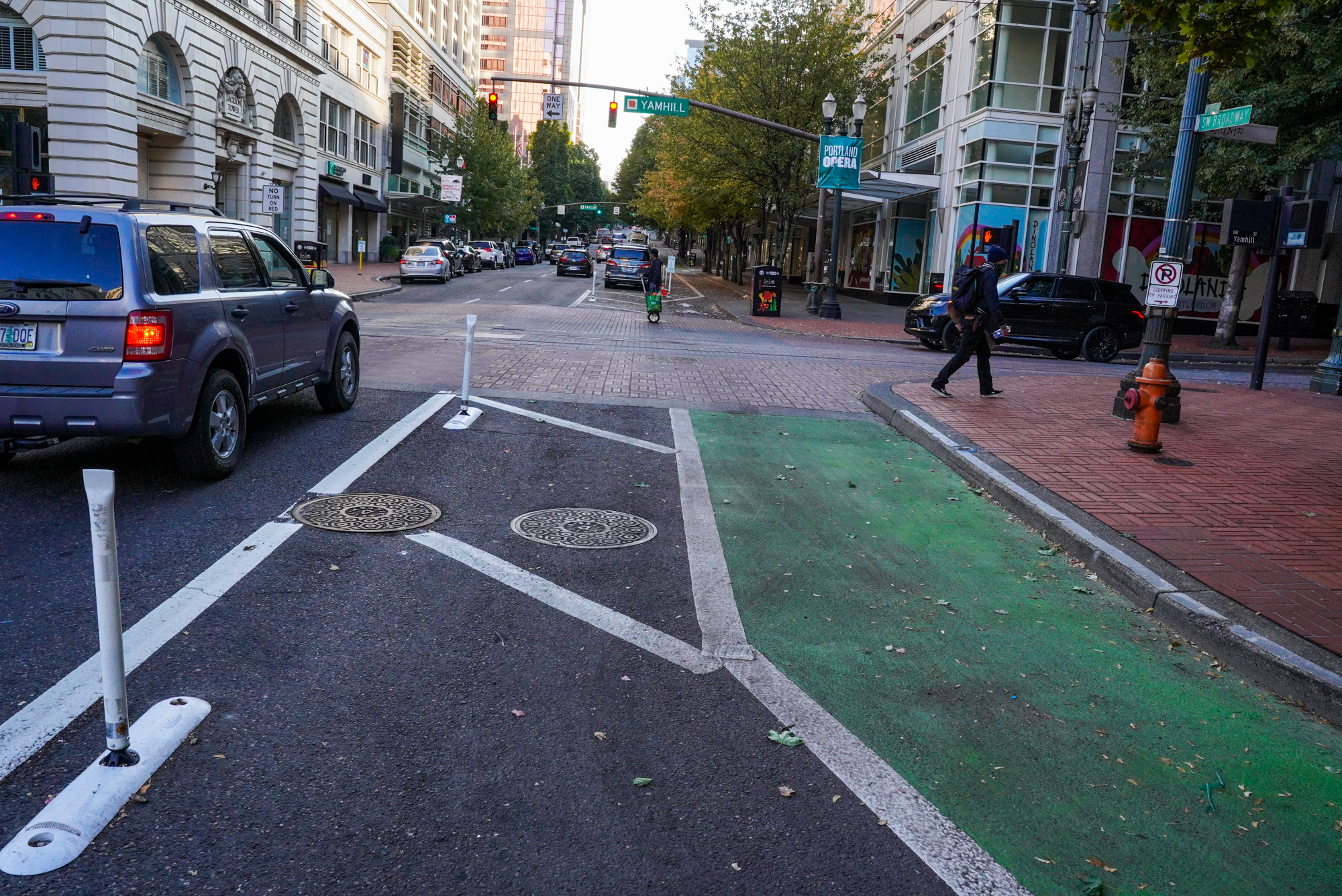
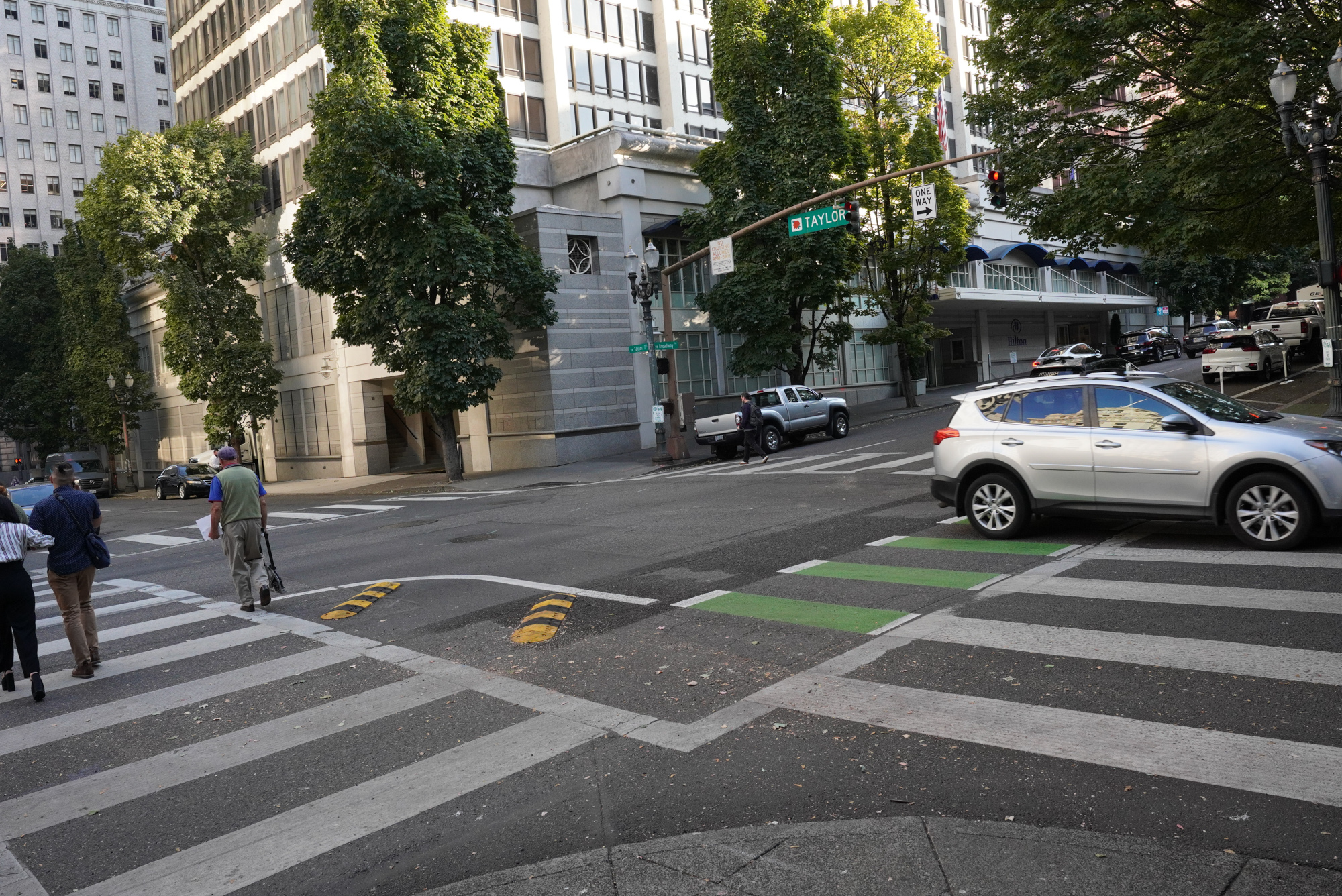
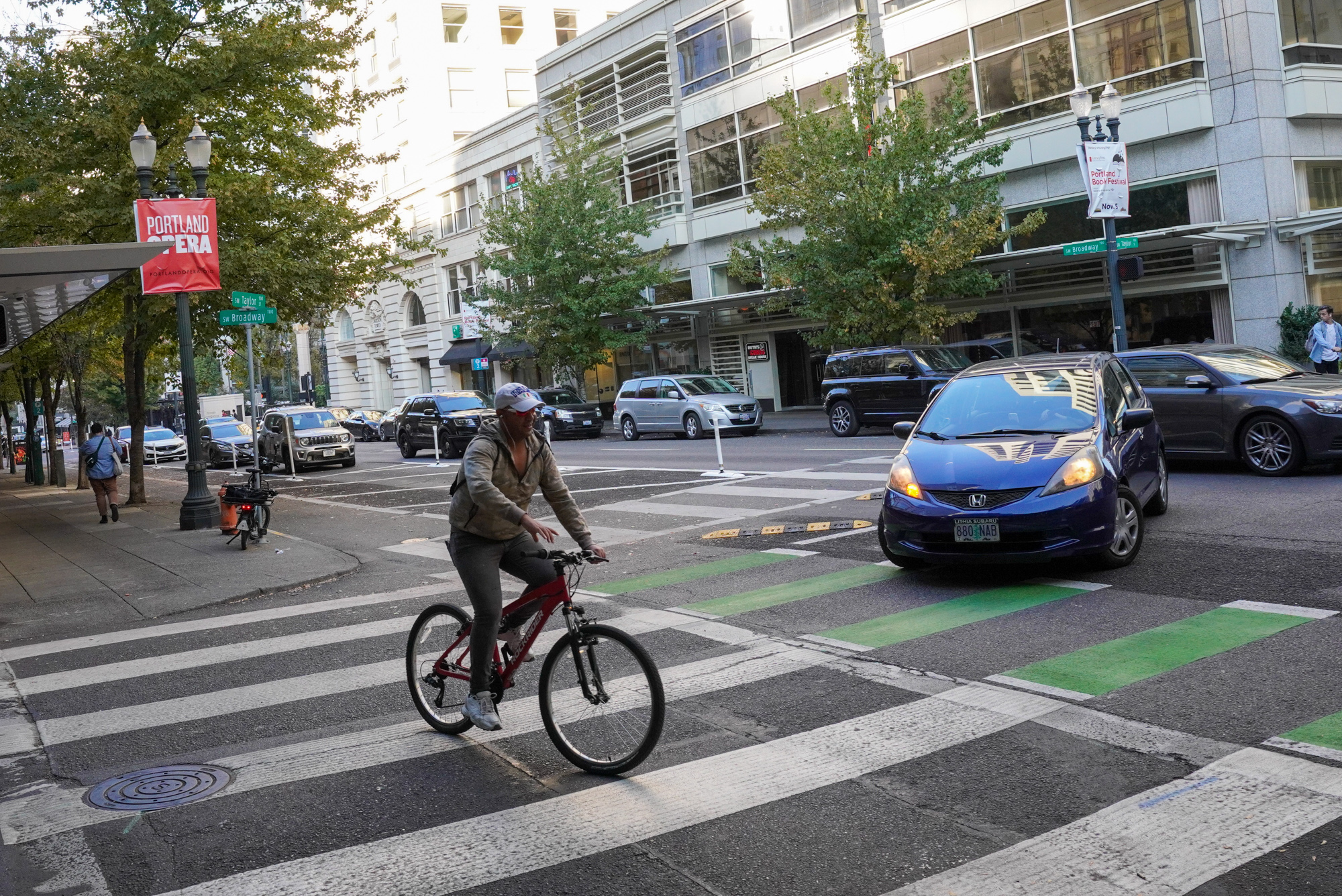
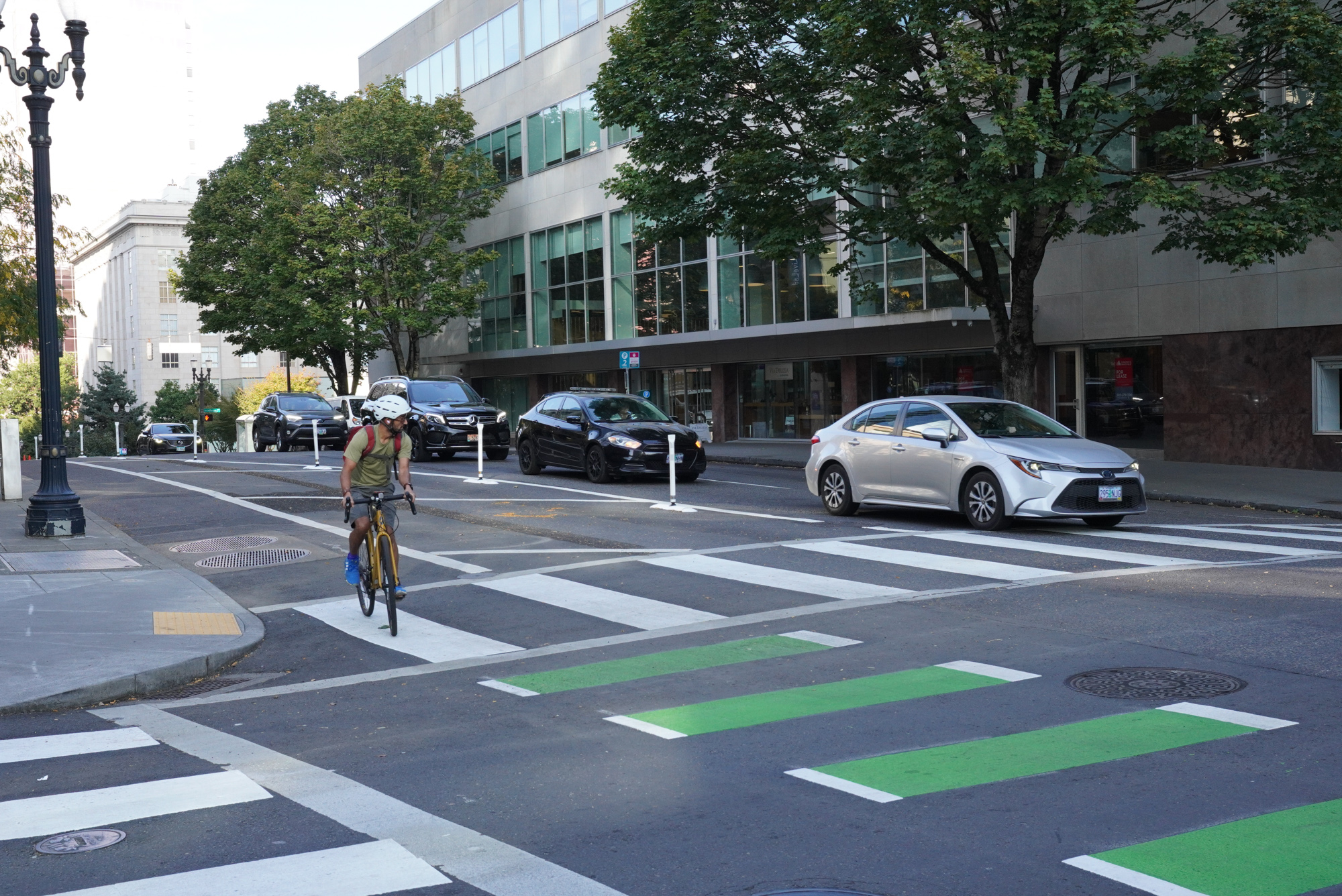
The design does so much more than protect bike riders. Because moving car traffic is now about 20-feet from the curb, there’s a much quieter and calmer feeling on the sidewalk. This means hotel, shop, and restaurant customers — and everyone moving around outside of a car — have more space to spread out and cleaner air to breathe. I bet sidewalk cafe seating, like the espresso stand outside Nordstrom, will become much more popular. This protected bike lane also creates a protected sidewalk. And because there’s less driving space, the crossing distance is significantly shorter and safer.
And since we’re not at Amsterdam levels of bike traffic yet, the bike lane won’t be full all the time. I personally have zero issues with non-bike riders using the bike lane space when it’s safe and polite to do so. I think we should even be cool with courteous bike riders going the opposite way in the bike lane, instead of using the sidewalk, to reach their final destination.
But while PBOT has reduced the space for drivers, they still have plenty of room to operate. Despite how some haters try to spin this, look at the photo below and you’ll see a streetscape that remains largely dominated by cars:
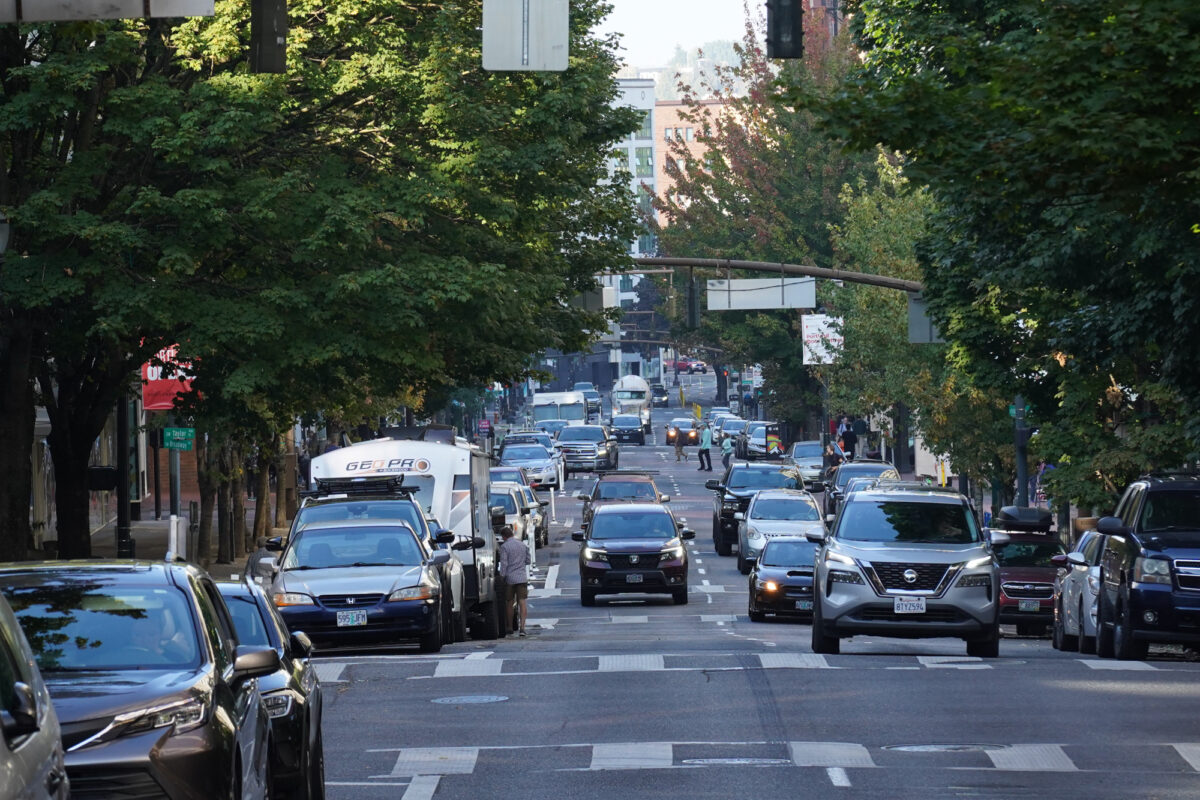
Speaking of which, we need to talk about the two hotel zones. I think one reason this segment took so long to get done was because PBOT was afraid to deal with owners of The Heathman and The Benson hotels. From my observations this is still an issue to track. At The Heathman I saw several drivers park in the bike lane, despite very clear “Hotel Zone” markings on nearby sign poles and in the bike lane. Fortunately, instead of before when double-parked cars would require bike riders to swerve into active traffic lanes, it’s now possible to squeeze by two parked cars. While still annoying and risky, at least you aren’t likely to be hit by a moving car. And if hotel staff and PBOT parking enforcement continue to monitor this, it should be a non-issue as folks get accustomed to the new rules.
Have you ridden this yet? We’d love to know what you think. Especially folks who rode it a lot before the changes.
Check out the rest of our photos below:
